At this critical stage in our planetary history, moral and spiritual voices are needed to create the foundations of a life-generating future for the Earth Community. In response to this need, a field of academic study and a new force of religious environmentalism have emerged. The Yale Forum, with hundreds of partners, has helped to encourage these developments. To ensure the further flourishing of this work, the Yale Forum is convening an Advisory Group who are committed to fostering:
- Interreligious dialogue: Build on dialogue between and among religions
- International outreach: Broaden our planetary scope by collaborating with Advisors whose work is focused on diverse geographical and cultural regions of the world
- Intergenerational continuity: Encourage senior scholars to act as mentors to junior-level scholars, in a mutually enhancing learning process
- Ecojustice concerns: Work to highlight systemic problems and potential solutions to growing inequities around the world
We trust there will be opportunities for more people to join in this next phase of the work that is still ahead.
Areas of specialization
| Indigenous | Judaism |
| Christianity | Islam |
| Sikhism | Baha'i Faith |
| Hinduism | Jainism |
| Buddhism | Daoism |
| Confucianism | Shinto |
| Interreligious | Laudato Si' |
| Climate Emergency |
Indigenous
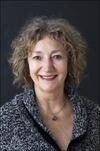 Frédérique Apffel-Marglin is Professor Emerita, Department of Anthropology at Smith College. She founded and directs the Sachamama Center for Biocultural Regeneration in the Peruvian High Amazon in 2009 where she works with indigenous communities as well as several High Schools in the province, regenerating the most sustainable and climate reducing pre-Columbian anthropogenic soil known as Terra Preta do Indio (black earth of the Indians). Her more recent books are: Subversive Spiritualities: How Rituals Enact the World (Oxford U. Pr. New York, 2011); Sacred Soil: Biochar and the Regeneration of the Earth with Robert Tindall and David Shearer (North Atlantic Books/Penguin Random, 2017) and most recently Contemporary Voices from Anima Mundi, edited with Stefano Varese and Peter Lang, 2020. She is currently working on a book on Upper Amazonian Shamanism. Read more.
Frédérique Apffel-Marglin is Professor Emerita, Department of Anthropology at Smith College. She founded and directs the Sachamama Center for Biocultural Regeneration in the Peruvian High Amazon in 2009 where she works with indigenous communities as well as several High Schools in the province, regenerating the most sustainable and climate reducing pre-Columbian anthropogenic soil known as Terra Preta do Indio (black earth of the Indians). Her more recent books are: Subversive Spiritualities: How Rituals Enact the World (Oxford U. Pr. New York, 2011); Sacred Soil: Biochar and the Regeneration of the Earth with Robert Tindall and David Shearer (North Atlantic Books/Penguin Random, 2017) and most recently Contemporary Voices from Anima Mundi, edited with Stefano Varese and Peter Lang, 2020. She is currently working on a book on Upper Amazonian Shamanism. Read more.
CONTACT: fmarglin@smith.edu
RESOURCE:
Watch an interview with her on our Living Earth Community Book page
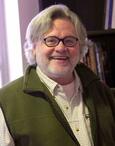 Philip P. Arnold is Associate Professor and Chair of the Department of Religion at Syracuse University, as well as a core faculty member of Native American and Indigenous Studies. He is the Director of the Skä·noñh—Great Law of Peace Center , which repurposes the site that formerly celebrated the Jesuits coming to Onondaga Nation Territory in 1656-58. The new Center now tells the ancient story of the formation of the Longhouse tradition known as the Great Law of Peace at Onondaga Lake and its influences on American culture. His books are Eating Landscape: Aztec and European Occupation of Tlalocan (1999); Sacred Landscapes and Cultural Politics: Planting a Tree(2001); The Gift of Sports: Indigenous Ceremonial Dimensions of the Games We Love(2012) and Urgency of Indigenous Religions (University of New Mexico Press, forthcoming). In 2007 he organized the Doctrine of Discovery Study Group to discuss the legacy of Christianity in the destruction of Indigenous peoples. He is the President of the Indigenous Values Initiative, which is a non-profit organization to support the work of the Skä·noñh—Great Law of Peace Center and other organizations and initiatives to educate the general public about the indigenous values of the Haudenosaunee. Read more.
Philip P. Arnold is Associate Professor and Chair of the Department of Religion at Syracuse University, as well as a core faculty member of Native American and Indigenous Studies. He is the Director of the Skä·noñh—Great Law of Peace Center , which repurposes the site that formerly celebrated the Jesuits coming to Onondaga Nation Territory in 1656-58. The new Center now tells the ancient story of the formation of the Longhouse tradition known as the Great Law of Peace at Onondaga Lake and its influences on American culture. His books are Eating Landscape: Aztec and European Occupation of Tlalocan (1999); Sacred Landscapes and Cultural Politics: Planting a Tree(2001); The Gift of Sports: Indigenous Ceremonial Dimensions of the Games We Love(2012) and Urgency of Indigenous Religions (University of New Mexico Press, forthcoming). In 2007 he organized the Doctrine of Discovery Study Group to discuss the legacy of Christianity in the destruction of Indigenous peoples. He is the President of the Indigenous Values Initiative, which is a non-profit organization to support the work of the Skä·noñh—Great Law of Peace Center and other organizations and initiatives to educate the general public about the indigenous values of the Haudenosaunee. Read more.
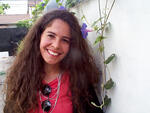 Ana Mariella Bacigalupo is Professor of Anthropology at SUNY Buffalo and Marta Sutton Weeks Faculty Fellow at the Stanford Humanities Center. Born in Peru, she has been working with indigenous Mapuche shamans in southern Chile and shamans in Northern Peru and their relations with sentient landscapes for 30 years. Professor Bacigalupo has published more than sixty articles and book chapters and is the author of five books: Thunder Shaman: Making History with Mapuche Spirits in Chile and Patagonia (University of Texas Press, 2016); Shamans of the Foye Tree: Gender, Power and Healing Among the Chilean Mapuche (University of Texas Press, 2007); The Voice of the Drum in Modernity: Tradition and Change in the Practice of Seven Mapuche Shamans (Universidad Católica de Chile Press, 2001); Hybridity in Mapuche “Traditional” Healing Methods: The Practice of Contemporary Mapuche Shamans (PAESMI Monographs, 1996); and Modernization and Wisdom in Mapuche Land (co-authored; San Pablo Press, 1995). She is currently writing a new book titles “The Subversive Politics of Sentient Landscapes: Collective Ethics and Environmental Justice in Northern Peru.” Read more.
Ana Mariella Bacigalupo is Professor of Anthropology at SUNY Buffalo and Marta Sutton Weeks Faculty Fellow at the Stanford Humanities Center. Born in Peru, she has been working with indigenous Mapuche shamans in southern Chile and shamans in Northern Peru and their relations with sentient landscapes for 30 years. Professor Bacigalupo has published more than sixty articles and book chapters and is the author of five books: Thunder Shaman: Making History with Mapuche Spirits in Chile and Patagonia (University of Texas Press, 2016); Shamans of the Foye Tree: Gender, Power and Healing Among the Chilean Mapuche (University of Texas Press, 2007); The Voice of the Drum in Modernity: Tradition and Change in the Practice of Seven Mapuche Shamans (Universidad Católica de Chile Press, 2001); Hybridity in Mapuche “Traditional” Healing Methods: The Practice of Contemporary Mapuche Shamans (PAESMI Monographs, 1996); and Modernization and Wisdom in Mapuche Land (co-authored; San Pablo Press, 1995). She is currently writing a new book titles “The Subversive Politics of Sentient Landscapes: Collective Ethics and Environmental Justice in Northern Peru.” Read more.
Contact: ana.bacigalupo93@gmail.com
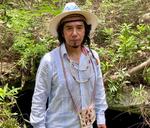 Mindahi Crescencio Bastida Muñoz serves as the General Coordinator of the Otomi-Toltec Regional Council in Mexico. He is a caretaker of the philosophy and traditions of the Otomi-Toltec Peoples, and has been a Ceremonial Officer since 1988. Mindahi is a Member of the Executive Committee of the Alliance Guardians of Mother Nature, an has served as a delegate to several commissions and summits on indigenous rights and the environment. Read more.
Mindahi Crescencio Bastida Muñoz serves as the General Coordinator of the Otomi-Toltec Regional Council in Mexico. He is a caretaker of the philosophy and traditions of the Otomi-Toltec Peoples, and has been a Ceremonial Officer since 1988. Mindahi is a Member of the Executive Committee of the Alliance Guardians of Mother Nature, an has served as a delegate to several commissions and summits on indigenous rights and the environment. Read more.
contact: mindahibastida@gmail.com
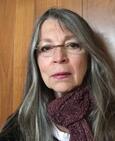 Sandy Bigtree, Bear Clan, is a citizen of the Mohawk Nation at Akwesasne. She is a founding board member of the Indigenous Values Initiative, which fosters collaboration between the academic community and the Haudenosaunee to promote the message of peace. She helped organize the: “Roots of Peacemaking” educational festivals in 2006 and 2007; the “Doctrine of Discovery Conference” in 2014; and co-edited the Neighbors of the Onondaga Nation (NOON) educational booklet. She was an original Planning Committee member of Skä•noñh: the Great Law of Peace Center and sits on the Educational Collaborative committee. In 1984-85, she was the Administrative Assistant to the American Indian Law Support Center at the Native American Rights Fund in Boulder, CO. In 1980-82 she performed with Native Americans in the Arts theatre troupe at LaMama, NYC, and toured the northeastern US. From age 1-30, Sandy performed weekly on radio, TV and other venues around Central New York. The Sandy Bigtree Band was well known throughout the 1970s. In 2008, Sandy was the recipient of the Syracuse New Times “Hall of Fame” Sammy Award. Read more.
Sandy Bigtree, Bear Clan, is a citizen of the Mohawk Nation at Akwesasne. She is a founding board member of the Indigenous Values Initiative, which fosters collaboration between the academic community and the Haudenosaunee to promote the message of peace. She helped organize the: “Roots of Peacemaking” educational festivals in 2006 and 2007; the “Doctrine of Discovery Conference” in 2014; and co-edited the Neighbors of the Onondaga Nation (NOON) educational booklet. She was an original Planning Committee member of Skä•noñh: the Great Law of Peace Center and sits on the Educational Collaborative committee. In 1984-85, she was the Administrative Assistant to the American Indian Law Support Center at the Native American Rights Fund in Boulder, CO. In 1980-82 she performed with Native Americans in the Arts theatre troupe at LaMama, NYC, and toured the northeastern US. From age 1-30, Sandy performed weekly on radio, TV and other venues around Central New York. The Sandy Bigtree Band was well known throughout the 1970s. In 2008, Sandy was the recipient of the Syracuse New Times “Hall of Fame” Sammy Award. Read more.
watch this 2-part interview with her in our fore spotlights series: Part 1; part 2
 John Grim is Co-Founder and Co-Director of the Yale Forum on Religion and Ecology with his wife, Mary Evelyn Tucker. With Tucker, Dr. Grim directed a 10-conference series and book project on “World Religions and Ecology” at Harvard University from 1996-1998. In that series he edited Indigenous Traditions and Ecology: The Interbeing of Cosmology and Community (2001). He is also the author of The Shaman: Patterns of Religious Healing Among the Ojibway Indians (1983). He and Tucker teach in a joint MA program in religion and ecology between Yale’s School of the Environment and the Divinity School. Read more.
John Grim is Co-Founder and Co-Director of the Yale Forum on Religion and Ecology with his wife, Mary Evelyn Tucker. With Tucker, Dr. Grim directed a 10-conference series and book project on “World Religions and Ecology” at Harvard University from 1996-1998. In that series he edited Indigenous Traditions and Ecology: The Interbeing of Cosmology and Community (2001). He is also the author of The Shaman: Patterns of Religious Healing Among the Ojibway Indians (1983). He and Tucker teach in a joint MA program in religion and ecology between Yale’s School of the Environment and the Divinity School. Read more.
contact: John.grim@yale.edu
RESOURCE:
See a full listing of his books, articles, and much more on our Press Kit page.
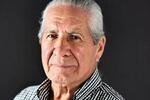 Oren Lyons is a faithkeeper of the Turtle Clan, Onondaga Council of Chiefs, Haudenosaunee (Six Nations Iroquois Confederacy). He has been active in international Indigenous rights and sovereignty issues for over four decades at the United Nations and other international forums. Chief Lyons co-founded the Traditional Circle of Indian Elders and Youth and serves on the board of Bioneers as an environmental champion of the earth. As an activist for Indigenous and environmental justice, Lyons worked with other Indigenous communities across the globe and helped establish the United Nations working group on Indigenous peoples in 1982. As a scholar, he has published many books and articles, including children's books. He co-edited Exiled in the Land of the Free (1992), which made the case for the influence of the ideas and values of the Iroquois Confederacy on American democracy and the Constitution. Read more.
Oren Lyons is a faithkeeper of the Turtle Clan, Onondaga Council of Chiefs, Haudenosaunee (Six Nations Iroquois Confederacy). He has been active in international Indigenous rights and sovereignty issues for over four decades at the United Nations and other international forums. Chief Lyons co-founded the Traditional Circle of Indian Elders and Youth and serves on the board of Bioneers as an environmental champion of the earth. As an activist for Indigenous and environmental justice, Lyons worked with other Indigenous communities across the globe and helped establish the United Nations working group on Indigenous peoples in 1982. As a scholar, he has published many books and articles, including children's books. He co-edited Exiled in the Land of the Free (1992), which made the case for the influence of the ideas and values of the Iroquois Confederacy on American democracy and the Constitution. Read more.
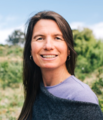 Melissa Nelson is an ecologist, writer, editor, media-maker, and native scholar-activist. She is a professor of Indigenous Sustainability at Arizona State University and board President of The Cultural Conservancy, an indigenous rights organization, which she has directed since 1993. Dr. Nelson served as a professor of American Indian Studies at San Francisco State University from 2002 to 2020. She is Anishinaabe/Métis/Norwegian and an enrolled member of the Turtle Mountain Band of Chippewa Indians. Her work is dedicated to indigenous rights and revitalization, Native science and biocultural diversity, ecological ethics and sustainability, and the renewal and celebration of community health and cultural arts. Dr. Nelson is editor of Original Instructions: Indigenous Teachings For A Sustainable Future (2008), co-editor and contributor to Traditional Ecological Knowledge: Learning from Indigenous Practices for Environmental Sustainability (2018) and co-producer of the award-winning documentary film, The Salt Song Trail: Bringing Creation Back Together (2005). Read more.
Melissa Nelson is an ecologist, writer, editor, media-maker, and native scholar-activist. She is a professor of Indigenous Sustainability at Arizona State University and board President of The Cultural Conservancy, an indigenous rights organization, which she has directed since 1993. Dr. Nelson served as a professor of American Indian Studies at San Francisco State University from 2002 to 2020. She is Anishinaabe/Métis/Norwegian and an enrolled member of the Turtle Mountain Band of Chippewa Indians. Her work is dedicated to indigenous rights and revitalization, Native science and biocultural diversity, ecological ethics and sustainability, and the renewal and celebration of community health and cultural arts. Dr. Nelson is editor of Original Instructions: Indigenous Teachings For A Sustainable Future (2008), co-editor and contributor to Traditional Ecological Knowledge: Learning from Indigenous Practices for Environmental Sustainability (2018) and co-producer of the award-winning documentary film, The Salt Song Trail: Bringing Creation Back Together (2005). Read more.
contact: melissa@nativeland.org
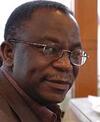 Jacob Olupona is Professor of African and African-American Studies and Professor of African Religious Traditions at Harvard University. A noted scholar of indigenous African religions, he has served on the editorial boards of three influential journals and as president of the African Association for the Study of Religion. Dr. Olupona’s current research focuses on The Nigerian Evangelicals. His previous research was about African Immigrant Religious Communities in America. His book City of 201 Gods: Ilé-Ifè in Time, Space, and the Imagination (2011) won the Harvard University Cabot Fellowship, 2012-2013 for distinguished faculty scholarship. He is the co-editor of Òrìsà Devotion as World Religion: The Globalization of Yorùbá Religious Culture (2008). Read more.
Jacob Olupona is Professor of African and African-American Studies and Professor of African Religious Traditions at Harvard University. A noted scholar of indigenous African religions, he has served on the editorial boards of three influential journals and as president of the African Association for the Study of Religion. Dr. Olupona’s current research focuses on The Nigerian Evangelicals. His previous research was about African Immigrant Religious Communities in America. His book City of 201 Gods: Ilé-Ifè in Time, Space, and the Imagination (2011) won the Harvard University Cabot Fellowship, 2012-2013 for distinguished faculty scholarship. He is the co-editor of Òrìsà Devotion as World Religion: The Globalization of Yorùbá Religious Culture (2008). Read more.
 Leslie Sponsel, a Professor Emeritus at the University of Hawai`i since 2010, still usually teaches one course each semester, including Sacred Places, Spiritual Ecology and Anthropology of Buddhism. Since 1986, most summers he has visited Thailand to research aspects of Buddhist ecology and environmentalism, in recent years on sacred caves. His Spiritual Ecology: A Quiet Revolution won the science category of the Green Book Award in San Francisco in 2014. Read more.
Leslie Sponsel, a Professor Emeritus at the University of Hawai`i since 2010, still usually teaches one course each semester, including Sacred Places, Spiritual Ecology and Anthropology of Buddhism. Since 1986, most summers he has visited Thailand to research aspects of Buddhist ecology and environmentalism, in recent years on sacred caves. His Spiritual Ecology: A Quiet Revolution won the science category of the Green Book Award in San Francisco in 2014. Read more.
contact: Sponsel@hawaii.edu
RESOURCE:
View his syllabus “spiritual Ecology”
Judaism
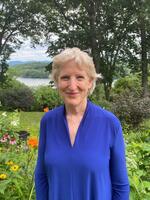
Ellen Bernstein (1954-2024) was a pioneer in the field of religion and ecology. She founded Shomrei Adamah, Keepers of the Earth, the first national Jewish environmental organization in 1988. Through her work with Shomrei Adamah, she illuminated and made accessible the ecological roots of Jewish tradition and developed a foundation in Jewish ecological thought and practice. A rabbi, author, and ecotheologian, she worked at the intersection of Judaism, Bible and ecology and was author of several books most notably The Splendor of Creation (2006), The Promise of the Land (2019), and Toward A Holy Ecology: Reading the Song of Songs in the Age of Climate Crisis (2024). She created the first ecological guide for the Jewish New Year of the Trees (Tu B’Shvat) (1988) and popularized this holiday as an ecological festival through large-scale inter-spiritual arts rituals. Read more.
RESOURCE:
Watch video of her on our Judaism Multimedia page
watch interviews with her from our spotlights video podcast series:
2.37 Ellen Bernstein: Rabbi, Author, and Ecotheologian
2.38 CLIP: Ecology in Genesis 1, with Ellen Bernstein
2.40 clip: Shomrei Adamah (Keepers of the Earth), with Rabbi Ellen Bernstein
 David Rosen, KSG, CBE, former Chief Rabbi of Ireland, is the International Director of Interreligious Affairs of the American Jewish Committee (AJC). He is a member of the Chief Rabbinate of Israel’s Committee for Interreligious Dialogue and serves on the Council of the Religious Institutions of the Holy Land. He is an International President of Religions for Peace, Honorary President of the International Council of Christians and Jews, and the only Jewish member of the Board of Directors of the King Abdullah International Center for Interreligious and Intercultural Dialogue, established in 2012 by the King of Saudi Arabia together with the governments of Austria and Spain with the support of the Holy See. He is past chair of the International Jewish Committee for Interreligious Consultations (IJCIC, which represents world Jewry to other world religious bodies.) In 2005, Pope Benedict XVI bestowed upon Rabbi Rosen a Papal Knighthood in recognition of his contribution to promoting Catholic-Jewish reconciliation and in 2010 he was awarded a CBE (Commander of the British Empire) by Queen Elizabeth II. Read more.
David Rosen, KSG, CBE, former Chief Rabbi of Ireland, is the International Director of Interreligious Affairs of the American Jewish Committee (AJC). He is a member of the Chief Rabbinate of Israel’s Committee for Interreligious Dialogue and serves on the Council of the Religious Institutions of the Holy Land. He is an International President of Religions for Peace, Honorary President of the International Council of Christians and Jews, and the only Jewish member of the Board of Directors of the King Abdullah International Center for Interreligious and Intercultural Dialogue, established in 2012 by the King of Saudi Arabia together with the governments of Austria and Spain with the support of the Holy See. He is past chair of the International Jewish Committee for Interreligious Consultations (IJCIC, which represents world Jewry to other world religious bodies.) In 2005, Pope Benedict XVI bestowed upon Rabbi Rosen a Papal Knighthood in recognition of his contribution to promoting Catholic-Jewish reconciliation and in 2010 he was awarded a CBE (Commander of the British Empire) by Queen Elizabeth II. Read more.
Contact: rosend@ajc.org
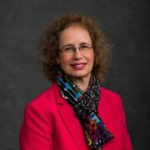 Hava Tirosh-Samuelson is Regents Professor of History, Irving and Miriam Lowe Professor of Modern Judaism, and Director of Jewish Studies at Arizona State University. An intellectual historian, she writes on Jewish philosophy and mysticism, religion, science and technology, and religion and ecology. She is the author of Between Worlds: The Life and Thought of Rabbi David ben Judah Messer Leon (1991), Happiness in Premodern Judaism: Virtue, Knowledge and Well-Being (2003) and Judaism and Environment: The Case of Judaism (2020) as well over 50 peer review articles. She is the editor of 31 volumes including the Library of Contemporary Jewish Philosophers, a set of 21 volumes (2013-2018). Tirosh-Samuelson received several large grants on religion, science and technology, most recently for the project “Beyond Secularization: Religion, Science and Technology in Public Life” (2019-2022). Read more.
Hava Tirosh-Samuelson is Regents Professor of History, Irving and Miriam Lowe Professor of Modern Judaism, and Director of Jewish Studies at Arizona State University. An intellectual historian, she writes on Jewish philosophy and mysticism, religion, science and technology, and religion and ecology. She is the author of Between Worlds: The Life and Thought of Rabbi David ben Judah Messer Leon (1991), Happiness in Premodern Judaism: Virtue, Knowledge and Well-Being (2003) and Judaism and Environment: The Case of Judaism (2020) as well over 50 peer review articles. She is the editor of 31 volumes including the Library of Contemporary Jewish Philosophers, a set of 21 volumes (2013-2018). Tirosh-Samuelson received several large grants on religion, science and technology, most recently for the project “Beyond Secularization: Religion, Science and Technology in Public Life” (2019-2022). Read more.
contact: Hava.Samuelson@asu.edu
RESOURCE:
Read her Overview Essay on Judaism and Ecology
Read her Introduction to the Judaism and Ecology volume
Watch video of her on our Religion & Ecology: Other Scholars Multimedia page
Watch an interview with her in our FORE Spotlights Series
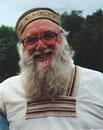 Rabbi Arthur Waskow (1933-2025) founded and directed The Shalom Center, a prophetic voice for eco/social justice and peace in the Jewish, multireligious, and American worlds. Waskow was a pioneer in shaping the theology, liturgy, daily practice, and activism of Eco-Judaism. He wrote, co-authored, or edited about 27 books on public policy and on religious thought and practice, most recently Dancing in God's Earthquake: The Coming Transformation of Religion (Orbis, October 2020). Read more.
Rabbi Arthur Waskow (1933-2025) founded and directed The Shalom Center, a prophetic voice for eco/social justice and peace in the Jewish, multireligious, and American worlds. Waskow was a pioneer in shaping the theology, liturgy, daily practice, and activism of Eco-Judaism. He wrote, co-authored, or edited about 27 books on public policy and on religious thought and practice, most recently Dancing in God's Earthquake: The Coming Transformation of Religion (Orbis, October 2020). Read more.
Christianity
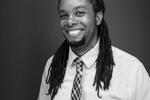 Christopher Carter is Assistant Professor of Theology and Religious Studies at the University of San Diego and a commissioned Elder in the United Methodist Church. His research, teaching, and activism centers on racial justice, specifically systematic environmental injustices experienced by Black, Indigenous, and other peoples of color. The Rev Dr. Carter explores how religion, animal agriculture, and the institution of factory farming affect food choices within the African American community and how these play a critical part in the marginalization of Black, Indigenous, and Latinx people. He is co-author of the book The Future of Meat Without Animals (2016), and author of the chapters “Blood in the Soil: The Racial, Racist, and Religious Dimensions of Environmentalism” (2018) and “Prophetic Labrador: Expanding (Black) Theology by Overcoming the Invisibility of Animal Life and Death” (2019). Read more.
Christopher Carter is Assistant Professor of Theology and Religious Studies at the University of San Diego and a commissioned Elder in the United Methodist Church. His research, teaching, and activism centers on racial justice, specifically systematic environmental injustices experienced by Black, Indigenous, and other peoples of color. The Rev Dr. Carter explores how religion, animal agriculture, and the institution of factory farming affect food choices within the African American community and how these play a critical part in the marginalization of Black, Indigenous, and Latinx people. He is co-author of the book The Future of Meat Without Animals (2016), and author of the chapters “Blood in the Soil: The Racial, Racist, and Religious Dimensions of Environmentalism” (2018) and “Prophetic Labrador: Expanding (Black) Theology by Overcoming the Invisibility of Animal Life and Death” (2019). Read more.
contact: ccarter@mtso.edu
RESOURCE:
Read his article “Blood in the Soil: The Racial, Racist, and Religious Dimensions of Environmentalism”
watch interviews with him in our fore spotlights video podcast series:
1.4 Christopher Carter, University of San Diego
2.25 The Spirit of Soul Food, with Christopher Carter
2.26 clip: Black Veganism, with Rev. Dr. Christopher Carter
2.27 clip: Decolonial Thinking with Christopher Carter
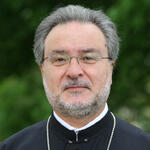 John Chryssavgis is Archdeacon of the Ecumenical Patriarchate and serves as theological advisor to Ecumenical Patriarch Bartholomew, “the green patriarch.” The Rev. Dr. Chryssavgis co-founded St Andrew’s Theological College in Sydney and taught theology in Sydney and Boston. He is author of On Earth as in Heaven: Ecological Vision and Initiatives of Ecumenical Patriarch Bartholomew (2011), Creation as Sacrament: Reflections on Ecology and Spirituality (2019), and co-editor of Toward an Ecology of Transfiguration: Orthodox Christian Perspectives on Environment, Nature, and Creation (2013). Read more.
John Chryssavgis is Archdeacon of the Ecumenical Patriarchate and serves as theological advisor to Ecumenical Patriarch Bartholomew, “the green patriarch.” The Rev. Dr. Chryssavgis co-founded St Andrew’s Theological College in Sydney and taught theology in Sydney and Boston. He is author of On Earth as in Heaven: Ecological Vision and Initiatives of Ecumenical Patriarch Bartholomew (2011), Creation as Sacrament: Reflections on Ecology and Spirituality (2019), and co-editor of Toward an Ecology of Transfiguration: Orthodox Christian Perspectives on Environment, Nature, and Creation (2013). Read more.
contact: chryssavgis@gmail.com
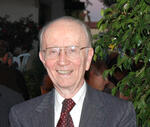 John Cobb (1925-2024) was Professor emeritus at the Claremont School of Theology where he co-founded the Center for Process Studies and Process & Faith. A theologian, philosopher, and environmentalist, he is considered the preeminent scholar in the field of process philosophy and process theology and has been influential in a wide range of disciplines, including theology, ecology, economics, biology, and social ethics. A prolific writer, he is the author of the first single-author book on environmental ethics, Is It Too Late? A Theology of Ecology (1971), co-author of For the Common Good: Redirecting the Economy Toward Community, Environment, and a Sustainable Future (1989), co-editor of For Our Common Home: Process-Relational Responses to Laudato Si' (2015), and co-editor of Putting Philosophy to Work: Toward an Ecological Civilization (2018). Read more.
John Cobb (1925-2024) was Professor emeritus at the Claremont School of Theology where he co-founded the Center for Process Studies and Process & Faith. A theologian, philosopher, and environmentalist, he is considered the preeminent scholar in the field of process philosophy and process theology and has been influential in a wide range of disciplines, including theology, ecology, economics, biology, and social ethics. A prolific writer, he is the author of the first single-author book on environmental ethics, Is It Too Late? A Theology of Ecology (1971), co-author of For the Common Good: Redirecting the Economy Toward Community, Environment, and a Sustainable Future (1989), co-editor of For Our Common Home: Process-Relational Responses to Laudato Si' (2015), and co-editor of Putting Philosophy to Work: Toward an Ecological Civilization (2018). Read more.
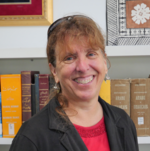 Lisa E. Dahill is Miriam Therese Winter Professor of Transformative Leadership and Spirituality at Hartford International University for Religion and Peace (formerly Hartford Seminary). She also directs the school's Center for Transformative Spirituality and its Graduate Certificate in Eco-Spirituality. She is co-editor of Eco-Reformation: Grace and Hope for a Planet in Peril (Cascade Books 2016) and author of numerous works on rewilding Christian spirituality and worship. Currently she is completing a volume on reading Dietrich Bonhoeffer ecologically, toward a non-dualistic, place-based, and animist Christian spirituality. A scholar and translator of Bonhoeffer's writings in the Fortress Press Dietrich Bonhoeffer Works series, she is also past president of the Society for the Study of Christian Spirituality and convener of the Ecology and Liturgy Seminar of the North American Academy of Liturgy. Read more.
Lisa E. Dahill is Miriam Therese Winter Professor of Transformative Leadership and Spirituality at Hartford International University for Religion and Peace (formerly Hartford Seminary). She also directs the school's Center for Transformative Spirituality and its Graduate Certificate in Eco-Spirituality. She is co-editor of Eco-Reformation: Grace and Hope for a Planet in Peril (Cascade Books 2016) and author of numerous works on rewilding Christian spirituality and worship. Currently she is completing a volume on reading Dietrich Bonhoeffer ecologically, toward a non-dualistic, place-based, and animist Christian spirituality. A scholar and translator of Bonhoeffer's writings in the Fortress Press Dietrich Bonhoeffer Works series, she is also past president of the Society for the Study of Christian Spirituality and convener of the Ecology and Liturgy Seminar of the North American Academy of Liturgy. Read more.
contact: ldahill@hartfordinternational.edu
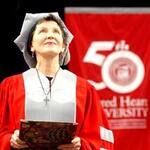 Kathleen Deignan, CND is Professor Emerita of Religious Studies at Iona College in New York where she founded and directs the Deignan Institute for Earth and Spirit. A member of the Congregation of Notre Dame, she is a GreenFaith Fellow, former President of the International Thomas Merton Society, founding co-convener of the Thomas Berry Forum for Ecological Dialogue, and serves on the board of the American Teilhard Association. Sister Kathleen is a teaching theologian, author, and sacred songwriter and liturgist. She did her graduate studies at Fordham University under the mentorship of Thomas Berry. Her scholarship and ministry focus on the wisdom legacies of Merton and Berry and the intersection of religion and the natural world. She is the author of ChristSpirit: The Theology of Shaker Christianity ( 1992), and the editor of When the Trees Say Nothing: Writings on Nature (2003) and Thomas Merton: A Book of Hours (2007). She has produced over a dozen collections of her original music. Read more.
Kathleen Deignan, CND is Professor Emerita of Religious Studies at Iona College in New York where she founded and directs the Deignan Institute for Earth and Spirit. A member of the Congregation of Notre Dame, she is a GreenFaith Fellow, former President of the International Thomas Merton Society, founding co-convener of the Thomas Berry Forum for Ecological Dialogue, and serves on the board of the American Teilhard Association. Sister Kathleen is a teaching theologian, author, and sacred songwriter and liturgist. She did her graduate studies at Fordham University under the mentorship of Thomas Berry. Her scholarship and ministry focus on the wisdom legacies of Merton and Berry and the intersection of religion and the natural world. She is the author of ChristSpirit: The Theology of Shaker Christianity ( 1992), and the editor of When the Trees Say Nothing: Writings on Nature (2003) and Thomas Merton: A Book of Hours (2007). She has produced over a dozen collections of her original music. Read more.
contact: kdeignan@iona.edu
 Heather Eaton is a Professor of Leadership, Ecology and Equity at Saint Paul University in Ottawa, Canada. Her research focuses on Environmental Humanities; the relationships among analyses, ethics and aesthetics, specifically wonder, in ecological discourses; the need for ecological literacy; the importance of nonviolence peace and justice studies on gender, ecology, religion; and animal rights. She has developed a Master’s and Bachelor’s degree in Leadership, Ecology and Equity, and is involved in conferences, workshops, teaching and publishing in these areas. Publications include Earthly Things: Immanence, New Materialisms, and Planetary Thinking, with Karen Bray, Whitney Bauman (Fordham, 2023), Advancing Nonviolence and Social Transformation with Lauren Levesque (Equinox 2016), The Intellectual Journey of Thomas Berry (Lexington Press 2014), Ecological Awareness: Exploring Religion, Ethics and Aesthetics, with Sigurd Bergmann (LIT Verlag 2011), Introducing Ecofeminist Theologies (T&T Clark 2005); and with Lois Lorentzen, Ecofeminism and Globalization (Rowman & Littlefield 2003). Read more.
Heather Eaton is a Professor of Leadership, Ecology and Equity at Saint Paul University in Ottawa, Canada. Her research focuses on Environmental Humanities; the relationships among analyses, ethics and aesthetics, specifically wonder, in ecological discourses; the need for ecological literacy; the importance of nonviolence peace and justice studies on gender, ecology, religion; and animal rights. She has developed a Master’s and Bachelor’s degree in Leadership, Ecology and Equity, and is involved in conferences, workshops, teaching and publishing in these areas. Publications include Earthly Things: Immanence, New Materialisms, and Planetary Thinking, with Karen Bray, Whitney Bauman (Fordham, 2023), Advancing Nonviolence and Social Transformation with Lauren Levesque (Equinox 2016), The Intellectual Journey of Thomas Berry (Lexington Press 2014), Ecological Awareness: Exploring Religion, Ethics and Aesthetics, with Sigurd Bergmann (LIT Verlag 2011), Introducing Ecofeminist Theologies (T&T Clark 2005); and with Lois Lorentzen, Ecofeminism and Globalization (Rowman & Littlefield 2003). Read more.
contact: heaton@ustpaul.ca
RESOURCE:
Read her Overview Essay on Christianity and Ecology
watch an interview with her in spotlights, our video podcast series.
Watch videos of her on the following multimedia pages: Christianity; Religion & Ecology: Other Scholars; Living earth Community VLOG series
View her CV.
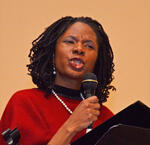
Melanie L. Harris is Professor of Black Feminist Thought and Womanist Theology jointly appointed with Wake Forest School of Divinity and the African American Studies program at Wake Forest University. Dr. Harris is also the Director of the Food, Health and Ecological Well-Being Program. A graduate of the Harvard Leadership Program, Dr. Harris is a former American Council of Education Fellow and Founding Director of the Texas Christian University African American and Africana Studies program. Her research focuses on Global Ethical Leadership, Race, Gender and Environmental Studies and Inclusive Excellence. She is the author of Gifts of Virtue: Alice Walker and Womanist Ethics (Palgrave), Ecowomanism: Earth Honoring Faiths (Orbis) and co-editor of Faith, Feminism, and Scholarship: The Next Generation (Palgrave) as well as numerous journal articles and book chapters. Dr. Harris is a former broadcast journalist who worked as a news producer for ABC, CBS, and NBC affiliates and currently serves as an educational consultant with the Ford Foundation, the Forum for Theological Exploration, and the Wabash Center for Teaching and Learning in Theology and Religion, Lilly Endowment Inc. Dr. Harris earned her PhD and M.A. degrees from Union Theological Seminary in The City of New York, an M. Div. from Iliff School of Theology and a B.A. from Spelman College. Read more.
contact: mharris@wfu.edu
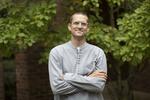 Willis Jenkins lives in the Rivanna River watershed, where he works at the University of Virginia as Professor of Religion, Ethics, & Environment, as Co-Director of the Coastal Futures Conservatory, and as Chair of the Department of Religious Studies. He is author of two award-winning books, Ecologies of Grace, which won a Templeton Award for Theological Promise, and The Future of Ethics, which won an American Academy of Religion Award for Excellence. With Mary Evelyn Tucker and John Grim, he co-edited The Routledge Handbook of Religion and Ecology. Read more.
Willis Jenkins lives in the Rivanna River watershed, where he works at the University of Virginia as Professor of Religion, Ethics, & Environment, as Co-Director of the Coastal Futures Conservatory, and as Chair of the Department of Religious Studies. He is author of two award-winning books, Ecologies of Grace, which won a Templeton Award for Theological Promise, and The Future of Ethics, which won an American Academy of Religion Award for Excellence. With Mary Evelyn Tucker and John Grim, he co-edited The Routledge Handbook of Religion and Ecology. Read more.
contact: wjj2c@virginia.edu
RESOURCE:
Watch video of him on our Living Earth Community Vlog series
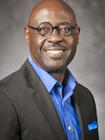 Willie Jennings is Associate Professor of Systematic Theology and Africana Studies at Yale Divinity School. He is the author of The Christian Imagination: Theology and the Origins of Race (Yale 2010), Acts: A Commentary, The Revolution of the Intimate (for the Belief Series, Westminster/John Knox 2017), and After Whiteness: An Education in Belonging (Eerdmans, 2020). He is now working on a major monograph provisionally entitled Unfolding the World: Recasting a Christian Doctrine of Creation as well as finishing a book of poetry entitled The Time of Possession. Writing in the areas of liberation theologies, cultural identities, and anthropology, Jennings has authored more than 40 scholarly essays and nearly two-dozen reviews, as well as essays on academic administration and blog posts for Religion Dispatches. He is an ordained Baptist minister and has served as interim pastor for several North Carolina churches. He is in high demand as a speaker and is widely recognized as a major figure in theological education across North America. Read more.
Willie Jennings is Associate Professor of Systematic Theology and Africana Studies at Yale Divinity School. He is the author of The Christian Imagination: Theology and the Origins of Race (Yale 2010), Acts: A Commentary, The Revolution of the Intimate (for the Belief Series, Westminster/John Knox 2017), and After Whiteness: An Education in Belonging (Eerdmans, 2020). He is now working on a major monograph provisionally entitled Unfolding the World: Recasting a Christian Doctrine of Creation as well as finishing a book of poetry entitled The Time of Possession. Writing in the areas of liberation theologies, cultural identities, and anthropology, Jennings has authored more than 40 scholarly essays and nearly two-dozen reviews, as well as essays on academic administration and blog posts for Religion Dispatches. He is an ordained Baptist minister and has served as interim pastor for several North Carolina churches. He is in high demand as a speaker and is widely recognized as a major figure in theological education across North America. Read more.
RESOURCE:
Listen to him on the Yale Quadcast Podcast “What Does Theology Say About Ecology”
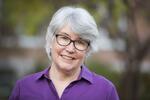
Laurel D. Kearns is Professor of Ecology, Religion, and Society at Drew Theological School where she has taught for over 25 years on sociology of religion and religion and ecology topics and helped eco-justice to become rooted in the Drew curriculum. Her publications focus primarily on religious, particularly Christian, involvement on ecological issues such as environmental justice and global warming, as seen in her recent TEDX talk “Take A Deep Breath” or EcoSpirit: Religions and Philosophies for the Earth, co-edited with Catherine Keller. In addition to her teaching, publishing and research in religion and ecology, she co-founded the Green Seminary Initiative and serves on its executive board. Her decades long interest in religious environmentalism has roots in the island where she was born, Sanibel, Florida. Read more.
contact: lkearns@drew.edu
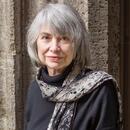 Catherine Keller is George T. Cobb Professor of Constructive Theology in The Graduate Division of Religion of Drew University. She pursues a broad spectrum of ecological, pluralist, process, and political theology. Books she has authored include From a Broken Web, Apocalypse Now & Then; God & Power; Face of the Deep: a Theology of Becoming; On the Mystery; Cloud of the Impossible: Negative Theology and Planetary Entanglement; Political Theology of the Earth: Our Planetary Emergency and the Struggle for a New Public. She has co-edited several volumes of the Drew Transdisciplinary Theological Colloquium, most recently Entangled Worlds: Religion, Science and the New Materialism. Facing Apocalypse: Climate, Democracy and Other Last Chances is forthcoming. Read more.
Catherine Keller is George T. Cobb Professor of Constructive Theology in The Graduate Division of Religion of Drew University. She pursues a broad spectrum of ecological, pluralist, process, and political theology. Books she has authored include From a Broken Web, Apocalypse Now & Then; God & Power; Face of the Deep: a Theology of Becoming; On the Mystery; Cloud of the Impossible: Negative Theology and Planetary Entanglement; Political Theology of the Earth: Our Planetary Emergency and the Struggle for a New Public. She has co-edited several volumes of the Drew Transdisciplinary Theological Colloquium, most recently Entangled Worlds: Religion, Science and the New Materialism. Facing Apocalypse: Climate, Democracy and Other Last Chances is forthcoming. Read more.
contact: ckeller@drew.edu
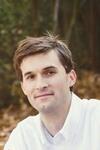 David C. McDuffie is a Senior Lecturer in the Department of Religious Studies and a member of the Environment and Sustainability Program Advisory Council in the Department of Geography, Environment, and Sustainability at the University of North Carolina at Greensboro. His research and teaching interests revolve around the interdisciplinary conversations between religion (with a particular emphasis on Christian tradition) and the natural sciences and the ways in which these conversations contribute to ecological conservation and public health. David was previously Chair of the Environmental Ministry Committee for the Episcopal Diocese of North Carolina and is the author of Nature’s Sacrament: The Epic of Evolution and a Theology of Sacramental Ecology. Read more.
David C. McDuffie is a Senior Lecturer in the Department of Religious Studies and a member of the Environment and Sustainability Program Advisory Council in the Department of Geography, Environment, and Sustainability at the University of North Carolina at Greensboro. His research and teaching interests revolve around the interdisciplinary conversations between religion (with a particular emphasis on Christian tradition) and the natural sciences and the ways in which these conversations contribute to ecological conservation and public health. David was previously Chair of the Environmental Ministry Committee for the Episcopal Diocese of North Carolina and is the author of Nature’s Sacrament: The Epic of Evolution and a Theology of Sacramental Ecology. Read more.
contact: dcmcduff@uncg.edu
 Cynthia Moe-Lobeda has lectured or consulted in Africa, Asia, Australia, Europe, Latin America, and many parts of North America in theology; ethics; and matters of climate justice and climate racism, moral agency, globalization, economic justice, public church, eco-feminist theology, and faith-based resistance to systemic oppression. Her most recent book, Resisting Structural Evil: Love as Ecological-Economic Vocation (Fortress, 2013), won a Nautilus Award for social justice. She also is author or coauthor of six volumes and dozens of articles and chapters. Dr. Moe-Lobeda is the recipient of numerous awards for both scholarship and civic engagement and is a co-founder of Seattle University’s Center for Environmental Justice and Sustainability. She teaches Theological and Social Ethics at Pacific Lutheran Theological Seminary, Church Divinity School of the Pacific, and the Graduate Theological Union in Berkeley. She is Founding Director of the Center for Climate Justice and Faith at Pacific Lutheran Theological Seminary. Read more.
Cynthia Moe-Lobeda has lectured or consulted in Africa, Asia, Australia, Europe, Latin America, and many parts of North America in theology; ethics; and matters of climate justice and climate racism, moral agency, globalization, economic justice, public church, eco-feminist theology, and faith-based resistance to systemic oppression. Her most recent book, Resisting Structural Evil: Love as Ecological-Economic Vocation (Fortress, 2013), won a Nautilus Award for social justice. She also is author or coauthor of six volumes and dozens of articles and chapters. Dr. Moe-Lobeda is the recipient of numerous awards for both scholarship and civic engagement and is a co-founder of Seattle University’s Center for Environmental Justice and Sustainability. She teaches Theological and Social Ethics at Pacific Lutheran Theological Seminary, Church Divinity School of the Pacific, and the Graduate Theological Union in Berkeley. She is Founding Director of the Center for Climate Justice and Faith at Pacific Lutheran Theological Seminary. Read more.
contact: cmoelobeda@plts.edu
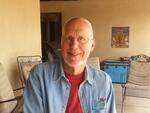 Larry Rasmussen is the Reinhold Niebuhr Professor Emeritus of Social Ethics at Union Theological Seminary and is one of the world’s foremost Christian environmental ethicists. He has mentored a generation of Christians in eco-theology and “green religion” and spearheaded environmental justice at Union Theological Seminary as an institution. He is the author of Earth Community, Earth Ethics (1996), Earth Honoring Faith: Religious Ethics in a New Key (2012), and is co-editor of Earth Habitat: Eco-Injustice and the Church’s Response (2001). He served as co-moderator of the Justice, Peace, Creation unit of the World Council of Churches from 1990–2000. Read more.
Larry Rasmussen is the Reinhold Niebuhr Professor Emeritus of Social Ethics at Union Theological Seminary and is one of the world’s foremost Christian environmental ethicists. He has mentored a generation of Christians in eco-theology and “green religion” and spearheaded environmental justice at Union Theological Seminary as an institution. He is the author of Earth Community, Earth Ethics (1996), Earth Honoring Faith: Religious Ethics in a New Key (2012), and is co-editor of Earth Habitat: Eco-Injustice and the Church’s Response (2001). He served as co-moderator of the Justice, Peace, Creation unit of the World Council of Churches from 1990–2000. Read more.
contact: lras1939@gmail.com
Watch a video of rasmussen presenting “Just Water” at Nobel Conference 45.
Watch a conversation with him on Envision
watch an interview with him in our Spotlights video podcast series:
3.13 Larry Rasmussen and The Planet You Inherit
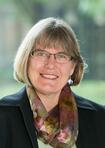 Barbara Rossing is professor of New Testament at the Lutheran School of Theology at Chicago, where she has taught since 1994. An avid environmentalist, Rossing is involved with environmental initiatives at the seminary. Rossing has lectured and preached widely, including synod assemblies and global mission events for the Evangelical Lutheran Church in America (ELCA), as well as ecumenical theological conferences. She has served on the executive committee and council of the Lutheran World Federation (2003-2010), and chaired the Lutheran World Federation's theology and studies committee. As a public theologian Barbara's media appearances have included “CBS Sixty Minutes” as well as The History Channel, National Geographic, Living the Questions, and numerous print and radio interviews. She has published widely on Christianity and ecology. Read more.
Barbara Rossing is professor of New Testament at the Lutheran School of Theology at Chicago, where she has taught since 1994. An avid environmentalist, Rossing is involved with environmental initiatives at the seminary. Rossing has lectured and preached widely, including synod assemblies and global mission events for the Evangelical Lutheran Church in America (ELCA), as well as ecumenical theological conferences. She has served on the executive committee and council of the Lutheran World Federation (2003-2010), and chaired the Lutheran World Federation's theology and studies committee. As a public theologian Barbara's media appearances have included “CBS Sixty Minutes” as well as The History Channel, National Geographic, Living the Questions, and numerous print and radio interviews. She has published widely on Christianity and ecology. Read more.
Contact: brossing@lstc.edu
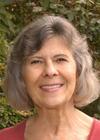 Jame Schaefer is Professor of Systematic Theology and Ethics at Marquette University (Milwaukee, Wisconsin) who constructively relates theology, the natural sciences, and technology with special attention to religious foundations for ecological ethics when teaching, researching, and publishing. She enjoys team teaching with scientists, advising students for an Environmental Active Campus, and directing the Interdisciplinary Minor in Ethics. She worked with an international team of scholars commissioned by the Higher Education Secretariat of the Society of Jesus to draft Healing Earth, an online interactive environmental science text motivated by Ignatian spirituality and oriented toward ethical action; lead a three-year project on behalf of the Society for Conservation Biology that yielded Guidelines for Interacting with Faith-Based Leaders and Communities (2018); and convened Theology and Ecology and Catholic Theology and Global Warming interest groups for several years on behalf of the Catholic Theological Society of America. Prior to entering academia, she addressed environmental issues at local, state, federal, and bi-national levels of governance. Read more.
Jame Schaefer is Professor of Systematic Theology and Ethics at Marquette University (Milwaukee, Wisconsin) who constructively relates theology, the natural sciences, and technology with special attention to religious foundations for ecological ethics when teaching, researching, and publishing. She enjoys team teaching with scientists, advising students for an Environmental Active Campus, and directing the Interdisciplinary Minor in Ethics. She worked with an international team of scholars commissioned by the Higher Education Secretariat of the Society of Jesus to draft Healing Earth, an online interactive environmental science text motivated by Ignatian spirituality and oriented toward ethical action; lead a three-year project on behalf of the Society for Conservation Biology that yielded Guidelines for Interacting with Faith-Based Leaders and Communities (2018); and convened Theology and Ecology and Catholic Theology and Global Warming interest groups for several years on behalf of the Catholic Theological Society of America. Prior to entering academia, she addressed environmental issues at local, state, federal, and bi-national levels of governance. Read more.
contact: schaeferj@marquette.edu
Read Schaefer’s Guidelines for Interacting with Faith-Based Leaders and Communities.
 Mark I. Wallace is Professor of Religion, Environmental Studies, and Interpretation Theory at Swarthmore College. At Swarthmore, he directs the ChesterSemester program in which college students work alongside Chester PA city partners in high-value internships focused on social and environmental justice. He has been a visiting professor at The University of Pennsylvania, Princeton Theological Seminary, and Japan International Christian University, and is core faculty for the U.S. State Department’s Institutes on Religious Pluralism at Temple University. Recent books include When God Was a Bird: Christianity, Animism, and the Re- Enchantment of the World (Fordham University Press 2019), awarded the 2019 Nautilus Gold Award for best book in Western religious thought; Green Christianity: Five Ways to a Sustainable Future (Fortress Press 2010); and Finding God in the Singing River: Christianity, Spirit, Nature (Fortress Press 2005). Read more.
Mark I. Wallace is Professor of Religion, Environmental Studies, and Interpretation Theory at Swarthmore College. At Swarthmore, he directs the ChesterSemester program in which college students work alongside Chester PA city partners in high-value internships focused on social and environmental justice. He has been a visiting professor at The University of Pennsylvania, Princeton Theological Seminary, and Japan International Christian University, and is core faculty for the U.S. State Department’s Institutes on Religious Pluralism at Temple University. Recent books include When God Was a Bird: Christianity, Animism, and the Re- Enchantment of the World (Fordham University Press 2019), awarded the 2019 Nautilus Gold Award for best book in Western religious thought; Green Christianity: Five Ways to a Sustainable Future (Fortress Press 2010); and Finding God in the Singing River: Christianity, Spirit, Nature (Fortress Press 2005). Read more.
contact: mwallac1@swarthmore.edu
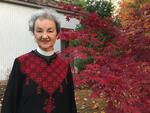 Nancy Wright is the Pastor of Ascension Lutheran Church in South Burlington, Vermont and the Environmental Liaison for the New England Synod of the Evangelical Lutheran Church in America. Her work and ministry focuses on watershed discipleship. She and her congregation created the Congregational Watershed Discipleship Manual, available in both Christian and interreligious versions, as guides to effective water stewardship. The Rev. Dr. Wright is the co-author of Ecological Healing: A Christian Vision (1993), “Christianity and Environmental Justice” in Crosscurrents (2011), and authored the chapter “Living Water,” in Living Cosmology: Christian Responses to Journey of the Universe (2016). Read more.
Nancy Wright is the Pastor of Ascension Lutheran Church in South Burlington, Vermont and the Environmental Liaison for the New England Synod of the Evangelical Lutheran Church in America. Her work and ministry focuses on watershed discipleship. She and her congregation created the Congregational Watershed Discipleship Manual, available in both Christian and interreligious versions, as guides to effective water stewardship. The Rev. Dr. Wright is the co-author of Ecological Healing: A Christian Vision (1993), “Christianity and Environmental Justice” in Crosscurrents (2011), and authored the chapter “Living Water,” in Living Cosmology: Christian Responses to Journey of the Universe (2016). Read more.
contact: revnancywright2@myfairpoint.net
 Christiana Zenner, Ph.D. is Associate Professor of Theology, Science, and Ethics at Fordham University in New York City. An anti-colonial feminist working at the intersections of theology, religious studies, and environmental sciences, Dr. Zenner is the author of Just Water: Theology, Ethics, and Fresh Water Crises (rev. ed. 2018) and co-editor of two volumes on bioethics and sustainability. Her next book, Beyond Laudato Si’: Ecotheology, Equitable Futures, and the Papal Turn to the Earth, is forthcoming in 2026. She has been a featured commentator for NPR and quoted in the New York Times, the Washington Post, and many other venues. Read more.
Christiana Zenner, Ph.D. is Associate Professor of Theology, Science, and Ethics at Fordham University in New York City. An anti-colonial feminist working at the intersections of theology, religious studies, and environmental sciences, Dr. Zenner is the author of Just Water: Theology, Ethics, and Fresh Water Crises (rev. ed. 2018) and co-editor of two volumes on bioethics and sustainability. Her next book, Beyond Laudato Si’: Ecotheology, Equitable Futures, and the Papal Turn to the Earth, is forthcoming in 2026. She has been a featured commentator for NPR and quoted in the New York Times, the Washington Post, and many other venues. Read more.
contact: czenner2@fordham.edu
Islam
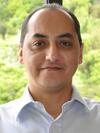 Zainal Abidin Bagir is a lecturer at the Graduate School of Universitas Gadjah Mada, Indonesia and the director of the Indonesian Consortium for Inter-religious Studies, a consortium of three universities in Yogyakarta (Gadjah Mada University, State Islamic University Sunan Kalijaga and Duta Wacana Christian University). His two main interests relate to the issue of democratic management of religious diversity and religion and science, with increasingly more focus on ecology. His recent publications include a chapter on governance of religions in the Routledge Handbook of Contemporary Indonesia (2018) and a contribution on Islam and ecology in the Routledge Handbook of Religion and Ecology (2017). Read more.
Zainal Abidin Bagir is a lecturer at the Graduate School of Universitas Gadjah Mada, Indonesia and the director of the Indonesian Consortium for Inter-religious Studies, a consortium of three universities in Yogyakarta (Gadjah Mada University, State Islamic University Sunan Kalijaga and Duta Wacana Christian University). His two main interests relate to the issue of democratic management of religious diversity and religion and science, with increasingly more focus on ecology. His recent publications include a chapter on governance of religions in the Routledge Handbook of Contemporary Indonesia (2018) and a contribution on Islam and ecology in the Routledge Handbook of Religion and Ecology (2017). Read more.
contact: zainalbagir@ugm.ac.id
RESOURCE:
Read his Overview Essay, “Islam: Norms and Practices”
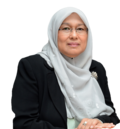
Datuk Prof. Dr. Azizan Baharuddin is currently the Director-General of the Institute of Islamic Understanding Malaysia (IKIM). She received her BSc (Hons) in Biology from the University of Tasmania, Australia in 1978, MSc (Univ. College London) in 1979 and PhD in Philosophy of Science (Science & Islam) from University of Lancaster, United Kingdom in 1989. She is the Chair of Climate Change (Universiti Kebangsaan Malaysia), Honorary Professor at the Centre for Civilisational Dialogue (Universiti Malaya) and Member of the National Council of Islamic Religious Affairs Malaysia. She was a member of the UNESCO International Bioethics Committee and a member of the Drafting Committee of the International Islamic Declaration on Global Climate Change (IDCC) launched in Istanbul in conjunction with the Conference of the Parties (COP21) – Paris Climate Change Conference in 2015. She specialises in several areas such as environmental ethics, religion and sustainable development, Islam and science, bioethics and interfaith/intercivilisational dialogue. She has published more than 200 books, book chapters, monographs, journal articles and newspaper articles in the above-mentioned, including Harmony between Religion and Science: An Islamic Perspective (2019), Environmental Ethics in Islam (2018), co-editor of Islam and Ecology: A Bestowed Trust (2003) and Environment, Values and the Future of Civilisation (2013). Read more.
Contact: azizanbaharuddin@gmail.com
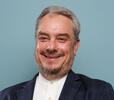 Imam Saffet Abid Catovic is Co-Chair of the Parliament of the World’s Religions Climate Action Task Force, Senior Muslim advisor to GreenFaith, and heads the office for Interfaith and Community Alliances for the Islamic Society of North America (INSA) in Washington DC. He is the Co-founder and Chair of the Green Muslims of New Jersey (GMNJ); a founding committee member of the Islamic Society of North America’s (ISNA) Green Initiatives; a consultant to the Drafting Committee of the Islamic Declaration on Global Climate Change (2015); a founding member of the Global Muslim Climate Network (GMCN); a co-drafter of the Fiqh Council of North America (FCNA) “Fatwa” religious ruling on fossil fuel divestment; and member of the scholars drafting team of “Al-Mizan - Covenant for the Earth” organized under the auspices of the United Nations Environmental Program (UNEP) and the Islamic World Educational, Scientific, and Cultural Organization (ICESCO). Read more.
Imam Saffet Abid Catovic is Co-Chair of the Parliament of the World’s Religions Climate Action Task Force, Senior Muslim advisor to GreenFaith, and heads the office for Interfaith and Community Alliances for the Islamic Society of North America (INSA) in Washington DC. He is the Co-founder and Chair of the Green Muslims of New Jersey (GMNJ); a founding committee member of the Islamic Society of North America’s (ISNA) Green Initiatives; a consultant to the Drafting Committee of the Islamic Declaration on Global Climate Change (2015); a founding member of the Global Muslim Climate Network (GMCN); a co-drafter of the Fiqh Council of North America (FCNA) “Fatwa” religious ruling on fossil fuel divestment; and member of the scholars drafting team of “Al-Mizan - Covenant for the Earth” organized under the auspices of the United Nations Environmental Program (UNEP) and the Islamic World Educational, Scientific, and Cultural Organization (ICESCO). Read more.
contact: scatovic@drew.edu
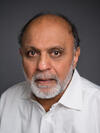 Fazlun Khalid founded the Islamic Foundation for Ecology and Environmental Sciences based in Birmingham, England in 1994. Since he began this work in the 1980s he has traveled the length and breath of the Muslim world from Nigeria to Indonesia setting up environmental education programs and initiating projects based on Islamic teachings. He has served as director of training at the Alliance of Religions and Conservation and as a consultant for the World Wildlife Fund. In addition to writing chapters for numerous prestigious publications he co-edited Islam and Ecology (1992) and authored Signs of the Earth: Islam, Modernity, and the Climate Crisis (2019). Read more.
Fazlun Khalid founded the Islamic Foundation for Ecology and Environmental Sciences based in Birmingham, England in 1994. Since he began this work in the 1980s he has traveled the length and breath of the Muslim world from Nigeria to Indonesia setting up environmental education programs and initiating projects based on Islamic teachings. He has served as director of training at the Alliance of Religions and Conservation and as a consultant for the World Wildlife Fund. In addition to writing chapters for numerous prestigious publications he co-edited Islam and Ecology (1992) and authored Signs of the Earth: Islam, Modernity, and the Climate Crisis (2019). Read more.
contact: fazlun.khalid@ifees.org.uk
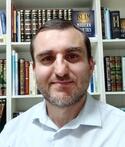 Jamel Khermimoun is a geographer and researcher at the Center for Study and Research on Islam and its Interactions (CERII) and at the University Platform for Research on Islam in Europe and Lebanon (PLURIEL). He obtained his PhD from University of Paris-Sorbonne in Geography and a Master’s degree in Political, Cultural, and Historical Geography (also from the Sorbonne). His research focuses on the relationships and interactions between the natural environment, identities, culture, and spirituality in Europe and in modern societies. He is the author of Urban Policies and Image of the Territory (2008), French and Muslim (2011), Ethics and Environment (2016), The Environment and Islam (2018), and Islam in Modern Societies (2018). Read more.
Jamel Khermimoun is a geographer and researcher at the Center for Study and Research on Islam and its Interactions (CERII) and at the University Platform for Research on Islam in Europe and Lebanon (PLURIEL). He obtained his PhD from University of Paris-Sorbonne in Geography and a Master’s degree in Political, Cultural, and Historical Geography (also from the Sorbonne). His research focuses on the relationships and interactions between the natural environment, identities, culture, and spirituality in Europe and in modern societies. He is the author of Urban Policies and Image of the Territory (2008), French and Muslim (2011), Ethics and Environment (2016), The Environment and Islam (2018), and Islam in Modern Societies (2018). Read more.
contact: j.khermimoun@cerii.fr
resource:
read his Article “Breaking the deadlock: When the coronavirus gives rise to hope and optimism”
watch videos of him on youtube:
Apocalypse écologique : comment en sommes-nous arrivés là ?
Sobriété et responsabilité : les clés du salut écologique
L'écologie est-elle un voeu pieu?
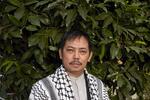 Fachruddin Majeri Mangunjaya is an environmentalist, author, and lecturer at in the Graduate Program School of Universitas Nasional in Jakarta, Indonesia where he is also the Chair of the Centre for Islamic Studies. He was a Visiting Fellow at the Institute of Islamic Understanding in Malaysia (IKIM) from 2018-19 and was on the drafting team for the Islamic Declaration for Global Climate Change in Istanbul in 2015. He is an advisory member of Siaga Bumi, the largest interreligious environmental coalition in Indonesia. Fachruddin is a member of the IUCN-WCPA Specialist Group in Cultural and Spiritual Values of Protected Areas and is on the Advisory Council for the Interfaith Rainforest Initiative (IRI) in Indonesia. He is the author of more than 200 books and articles on the environment, climate change, sustainable development, Islam and environment, biodiversity, and environmental management including Konservasi Alam Dalam Islam (Nature Conservation in Islam) in 2005 and Hidup Harmonis Dengan Alam (Living Harmoniously with Nature), in 2006. Read more.
Fachruddin Majeri Mangunjaya is an environmentalist, author, and lecturer at in the Graduate Program School of Universitas Nasional in Jakarta, Indonesia where he is also the Chair of the Centre for Islamic Studies. He was a Visiting Fellow at the Institute of Islamic Understanding in Malaysia (IKIM) from 2018-19 and was on the drafting team for the Islamic Declaration for Global Climate Change in Istanbul in 2015. He is an advisory member of Siaga Bumi, the largest interreligious environmental coalition in Indonesia. Fachruddin is a member of the IUCN-WCPA Specialist Group in Cultural and Spiritual Values of Protected Areas and is on the Advisory Council for the Interfaith Rainforest Initiative (IRI) in Indonesia. He is the author of more than 200 books and articles on the environment, climate change, sustainable development, Islam and environment, biodiversity, and environmental management including Konservasi Alam Dalam Islam (Nature Conservation in Islam) in 2005 and Hidup Harmonis Dengan Alam (Living Harmoniously with Nature), in 2006. Read more.
contact: fmangunjaya@civitas.unas.ac.id
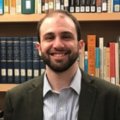 Munjed M. Murad is the Johnson-Fry Assistant Professor of World Religions and Intercultural Studies at United Theological Seminary of the Twin Cities. He is also the director of the seminary’s concentration in religion and ecology. His research interests include Islam, Christianity, mysticism, comparative religion, and the natural environment. He holds a Master of Environmental Management degree from Yale School of the Environment, where he studied religion and ecology. For his doctorate of theology at Harvard Divinity School, he defended a dissertation entitled “A Tale of Two Trees: Unveiling the Sacred Life of Nature in Islamic and Christian Traditions.” Read more.
Munjed M. Murad is the Johnson-Fry Assistant Professor of World Religions and Intercultural Studies at United Theological Seminary of the Twin Cities. He is also the director of the seminary’s concentration in religion and ecology. His research interests include Islam, Christianity, mysticism, comparative religion, and the natural environment. He holds a Master of Environmental Management degree from Yale School of the Environment, where he studied religion and ecology. For his doctorate of theology at Harvard Divinity School, he defended a dissertation entitled “A Tale of Two Trees: Unveiling the Sacred Life of Nature in Islamic and Christian Traditions.” Read more.
contact: mmurad@unitedseminary.edu
 Seyyed Hossein Nasr is University Professor of Islamic Studies at The George Washington University in Washington, D.C. After graduating from MIT with a Bachelors in Physics, he received a Masters in Geophysics and a PhD in the History of Science from Harvard University. In 1958, Nasr returned to Iran to teach Islamic philosophy at Tehran University where he later served as Vice-Chancellor and Dean of the Faculty of Letters. Nasr was the first Muslim to deliver the prestigious Gifford and Cadbury Lectures, and was inducted to the Library of Living Philosophers in 2000. He has published over 50 books and 650 articles on Islamic Science, Philosophy, Comparative Religion, Islamic Ecology and Environmentalism, Art, and Sufism. Some of his publications include The Study Quran as its Editor-In-Chief, Religion and the Order of Nature, Man and Nature, and The Garden of Truth: The Vision and Promise of Sufism. Read more.
Seyyed Hossein Nasr is University Professor of Islamic Studies at The George Washington University in Washington, D.C. After graduating from MIT with a Bachelors in Physics, he received a Masters in Geophysics and a PhD in the History of Science from Harvard University. In 1958, Nasr returned to Iran to teach Islamic philosophy at Tehran University where he later served as Vice-Chancellor and Dean of the Faculty of Letters. Nasr was the first Muslim to deliver the prestigious Gifford and Cadbury Lectures, and was inducted to the Library of Living Philosophers in 2000. He has published over 50 books and 650 articles on Islamic Science, Philosophy, Comparative Religion, Islamic Ecology and Environmentalism, Art, and Sufism. Some of his publications include The Study Quran as its Editor-In-Chief, Religion and the Order of Nature, Man and Nature, and The Garden of Truth: The Vision and Promise of Sufism. Read more.
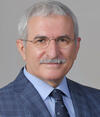 İbrahim Özdemir is Professor of Philosophy at Uskudar University in Istanbul, Turkey. With a research focus on environmental ethics and environmental philosophy, Dr. Özdemir addresses different audiences about topics related to environmental philosophy, Muslim environmental thought, sustainable development, religion and the environment, and interreligious and intercultural dialogue. He is the author of The Ethical Dimension of Human Attitude Towards Nature (1997) and co-editor of Globalization, Ethics and Islam (2005). Read more.
İbrahim Özdemir is Professor of Philosophy at Uskudar University in Istanbul, Turkey. With a research focus on environmental ethics and environmental philosophy, Dr. Özdemir addresses different audiences about topics related to environmental philosophy, Muslim environmental thought, sustainable development, religion and the environment, and interreligious and intercultural dialogue. He is the author of The Ethical Dimension of Human Attitude Towards Nature (1997) and co-editor of Globalization, Ethics and Islam (2005). Read more.
contact: ib60dmr@gmail.com
Sikhism
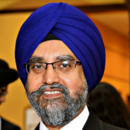 Rajwant Singh is the founder and President of EcoSikh. Dr. Singh is also the Chairman of the Sikh Council on Religion and Education (SCORE), Communications Director of the Sikh Human Development Foundation, and Secretary of the Guru Gobind Singh Foundation in Maryland. He has been president of the Interfaith Conference of Metropolitan Washington where he convened faith communities in DC for joint discussions. Read more.
Rajwant Singh is the founder and President of EcoSikh. Dr. Singh is also the Chairman of the Sikh Council on Religion and Education (SCORE), Communications Director of the Sikh Human Development Foundation, and Secretary of the Guru Gobind Singh Foundation in Maryland. He has been president of the Interfaith Conference of Metropolitan Washington where he convened faith communities in DC for joint discussions. Read more.
RESOURCE:
Read his Overview Essay, “Environmental Theology in Sikhism”
Baha'i Faith
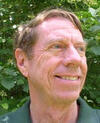 Arthur Dahl is President of the International Environment Forum in Geneva, Switzerland and is a retired Deputy Assistant Executive Director of the United Nations Environment Programme (UNEP). He has 50 years of international experience in environment and sustainability, and represented the Baha'i International Community at the United Nations Conference on the Human Environment in Stockholm in 1972. He is the author of Unless and Until: A Baháʼí focus on the Environment (1990), The Eco Principle: Ecology and Economics in Symbiosis (1996), In Pursuit of Hope: A Guide for the Seeker (2019), and co-author of Global Governance and the Emergence of Global Institutions for the 21st Century (2020). Read more.
Arthur Dahl is President of the International Environment Forum in Geneva, Switzerland and is a retired Deputy Assistant Executive Director of the United Nations Environment Programme (UNEP). He has 50 years of international experience in environment and sustainability, and represented the Baha'i International Community at the United Nations Conference on the Human Environment in Stockholm in 1972. He is the author of Unless and Until: A Baháʼí focus on the Environment (1990), The Eco Principle: Ecology and Economics in Symbiosis (1996), In Pursuit of Hope: A Guide for the Seeker (2019), and co-author of Global Governance and the Emergence of Global Institutions for the 21st Century (2020). Read more.
contact: dahla@bluewin.ch
RESOURCE:
Read his Overview Essay (with Peter Adriance) on the Baha'i Faith and Ecology
Hinduism
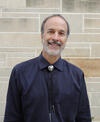 David L. Haberman received his Ph.D. in History of Religions from the University of Chicago and is currently Professor of Religious Studies at Indiana University-Bloomington. Although his research focuses on the devotional cultures of Northern India, he has studied and taught all major religious traditions. Much of his work has centered on the culture of Braj, the active pilgrimage site long associated with Krishna and known for its lively temple festivals, performative traditions, and literary creations. His book projects track the relationship between religion, ecology and nature, with a focus on Hindu attitudes toward and interaction with nonhuman entities such as rivers, trees and mountains. David is author of River of Love in an Age of Pollution: The Yamuna River of Northern India (2006), People Trees: Worship of Trees in Northern India (2013), and Loving Stones: Making the Impossible Possible in the Worship of Mount Govardhan (2020). Read more.
David L. Haberman received his Ph.D. in History of Religions from the University of Chicago and is currently Professor of Religious Studies at Indiana University-Bloomington. Although his research focuses on the devotional cultures of Northern India, he has studied and taught all major religious traditions. Much of his work has centered on the culture of Braj, the active pilgrimage site long associated with Krishna and known for its lively temple festivals, performative traditions, and literary creations. His book projects track the relationship between religion, ecology and nature, with a focus on Hindu attitudes toward and interaction with nonhuman entities such as rivers, trees and mountains. David is author of River of Love in an Age of Pollution: The Yamuna River of Northern India (2006), People Trees: Worship of Trees in Northern India (2013), and Loving Stones: Making the Impossible Possible in the Worship of Mount Govardhan (2020). Read more.
contact: dhaberma@indiana.edu
RESOURCE:
Read his Overview Essay, “Hinduism: Devotional Love of the World”
Watch video of him on the Hinduism Multimedia page
watch THESE interviews with hIM in our fore spotlights series:
Understanding Climate change through religious Lifeworlds
Loving Stones
religion and climate change
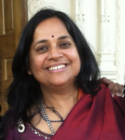 Vijaya Nagarajan is an Associate Professor in the Department of Theology/Religious Studies (Department Chair 2018-2020) and in the Program of Environmental Studies at the University of San Francisco. She writes and teaches on Hinduism, gender, ritual, ecology, climate, the commons, energy, and ethics. She is active in the American Academy of Religion and in environmental movements in the United States and in India. Her book, Feeding a Thousand Souls: Women, Ritual and Ecology in India— An Exploration of the Kolam (Oxford University Press), is a deep investigation of a popular women’s ritual art, the kolam, and the multiple ways in which beauty embodies ethics. Read more.
Vijaya Nagarajan is an Associate Professor in the Department of Theology/Religious Studies (Department Chair 2018-2020) and in the Program of Environmental Studies at the University of San Francisco. She writes and teaches on Hinduism, gender, ritual, ecology, climate, the commons, energy, and ethics. She is active in the American Academy of Religion and in environmental movements in the United States and in India. Her book, Feeding a Thousand Souls: Women, Ritual and Ecology in India— An Exploration of the Kolam (Oxford University Press), is a deep investigation of a popular women’s ritual art, the kolam, and the multiple ways in which beauty embodies ethics. Read more.
contact: nagarajan@usfca.edu
watch these interviews with her in our fore spotlights series:
Hinduism and ecology with Vijaya nagarajan
Interviews with authors on Hinduism and ecology
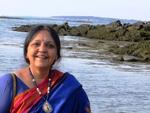
contact: vasu@ufl.edu
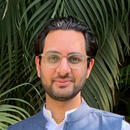 Gopal D. Patel is co-Founder and Director of Bhumi Global, an international Hindu faith-inspired NGO that works to promote environmental care. He has spent over 10 years as an environmental activist and leader to address issues such as climate change and biodiversity loss. Gopal also serves as co-chair of the United Nations Multi-faith Advisory Council and is an Advisor to the Parliament of the World’s Religions. Born and raised in England, Gopal currently lives with his wife in New York City. Read more.
Gopal D. Patel is co-Founder and Director of Bhumi Global, an international Hindu faith-inspired NGO that works to promote environmental care. He has spent over 10 years as an environmental activist and leader to address issues such as climate change and biodiversity loss. Gopal also serves as co-chair of the United Nations Multi-faith Advisory Council and is an Advisor to the Parliament of the World’s Religions. Born and raised in England, Gopal currently lives with his wife in New York City. Read more.
contact: gopal@futurefaith.io
watch an interview with him in our spotlights video podcast series:
3.17 Interfaith Environmentalism with Gopal Patel
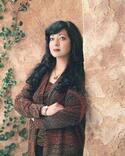
contact: rsherma@gtu.edu
Jainism
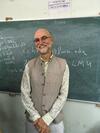 Christopher Key Chapple is Doshi Professor of Indic and Comparative Theology and founding Director of the Master of Arts in Yoga Studies at Loyola Marymount University in Los Angeles. A specialist in the religions of India, he has published more than twenty books, including the recent Living Landscapes: Meditations on the Elements in Hindu, Buddhist, and Jain Yogas (SUNY Press). He serves as advisor to multiple organizations including the Forum on Religion and Ecology (Yale), the Ahimsa Center (Pomona), the Dharma Academy of North America (Berkeley), the Jain Studies Centre (SOAS, London), the South Asian Studies Association, and International School for Jain Studies (New Delhi). He teaches online through the Center for Religion and Spirituality (LMU) and YogaGlo. Read more.
Christopher Key Chapple is Doshi Professor of Indic and Comparative Theology and founding Director of the Master of Arts in Yoga Studies at Loyola Marymount University in Los Angeles. A specialist in the religions of India, he has published more than twenty books, including the recent Living Landscapes: Meditations on the Elements in Hindu, Buddhist, and Jain Yogas (SUNY Press). He serves as advisor to multiple organizations including the Forum on Religion and Ecology (Yale), the Ahimsa Center (Pomona), the Dharma Academy of North America (Berkeley), the Jain Studies Centre (SOAS, London), the South Asian Studies Association, and International School for Jain Studies (New Delhi). He teaches online through the Center for Religion and Spirituality (LMU) and YogaGlo. Read more.
contact: cchapple@lmu.edu
RESOURCE:
Read his Overview Essay on Jainism and Ecology
Read his Introduction to the Jainism and Ecology volume
Watch video of him on the following multimedia pages: Jainism; Parliament of the World's Religions
watch this interview with him in our fore spotlights series
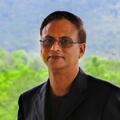 Pankaj Jain, Ph.D., is Professor and Head of Humanities & Languages and Director of The India Centre at FLAME University, Pune. An interdisciplinary scholar of Sustainability, Jain Studies, Film Studies, and Diaspora Studies, his work bridges religion, ecology, and culture. Previously, he taught in the Departments of Philosophy, Religion, and Anthropology at the University of North Texas, where he co-chaired the India Initiatives Group. He holds a Ph.D. from the University of Iowa, an M.A. from Columbia University, and a B.E. in Computer Science from Karnatak University. Dr. Jain is the author of eight books, including Jainism: From Bhagwan Mahavira to Mahatma Gandhi (2025) and Dharma and Ecology of Hindu Communities (2011), winner of multiple American awards. His scholarship has been featured in The New York Times, Washington Post, BBC, and National Geographic. He is also a Fulbright-Nehru Fellow and recipient of other prestigious research grants for Environmental Leadership. His research aligns closely with the Forum on Religion and Ecology at Yale, advancing dialogue on religion, culture, and environmental sustainability. Read more.
Pankaj Jain, Ph.D., is Professor and Head of Humanities & Languages and Director of The India Centre at FLAME University, Pune. An interdisciplinary scholar of Sustainability, Jain Studies, Film Studies, and Diaspora Studies, his work bridges religion, ecology, and culture. Previously, he taught in the Departments of Philosophy, Religion, and Anthropology at the University of North Texas, where he co-chaired the India Initiatives Group. He holds a Ph.D. from the University of Iowa, an M.A. from Columbia University, and a B.E. in Computer Science from Karnatak University. Dr. Jain is the author of eight books, including Jainism: From Bhagwan Mahavira to Mahatma Gandhi (2025) and Dharma and Ecology of Hindu Communities (2011), winner of multiple American awards. His scholarship has been featured in The New York Times, Washington Post, BBC, and National Geographic. He is also a Fulbright-Nehru Fellow and recipient of other prestigious research grants for Environmental Leadership. His research aligns closely with the Forum on Religion and Ecology at Yale, advancing dialogue on religion, culture, and environmental sustainability. Read more.
contact: pankaj.jain@flame.edu.in
resource:
watch these interviews with him in our fore spotlights series:
dharma and ecology
animals in India
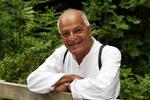 Satish Kumar is an Indian British activist and editor. He has been a Jain monk, nuclear disarmament advocate, pacifist, and is Editor Emeritus of Resurgence & Ecologist magazine. Satish is founder and Visiting Fellow at the Schumacher College International Centre for Ecological Studies. He is known for his peace walk of over 8,000 miles in 1973-74, from New Delhi to Moscow, Paris, London, and Washington, D.C., the capitals of the world's earliest nuclear-armed countries. He insists that reverence for nature should be at the heart of every political and social debate. He is the author of Earth Pilgrim (2009), Soil, Soul, Society: A New Trinity for Our Time (2013), and You Are Therefore I Am: A Declaration of Dependence (2002). Read more.
Satish Kumar is an Indian British activist and editor. He has been a Jain monk, nuclear disarmament advocate, pacifist, and is Editor Emeritus of Resurgence & Ecologist magazine. Satish is founder and Visiting Fellow at the Schumacher College International Centre for Ecological Studies. He is known for his peace walk of over 8,000 miles in 1973-74, from New Delhi to Moscow, Paris, London, and Washington, D.C., the capitals of the world's earliest nuclear-armed countries. He insists that reverence for nature should be at the heart of every political and social debate. He is the author of Earth Pilgrim (2009), Soil, Soul, Society: A New Trinity for Our Time (2013), and You Are Therefore I Am: A Declaration of Dependence (2002). Read more.
contact: satish@resurgence.org
Buddhism
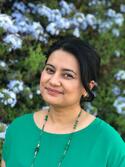 Dekila Chungyalpa is Director of the Loka Initiative at the University of Wisconsin–Madison, which supports faith-led environmental efforts locally and around the world through collaborations with faith leaders and religious institutions on environmental protection, sustainable development, and climate change. Dekila founded and directed Sacred Earth, an acclaimed faith-based conservation program at the World Wildlife Fund from 2009 to 2014. She helped establish Khoryug, a Tibetan Buddhist eco-monastic association in the Himalayas under the auspices of HH the 17th Karmapa, and serves as the environmental adviser for His Holiness the 17th Karmapa, head of the Karma Kagyu School of Tibetan Buddhism. Read more.
Dekila Chungyalpa is Director of the Loka Initiative at the University of Wisconsin–Madison, which supports faith-led environmental efforts locally and around the world through collaborations with faith leaders and religious institutions on environmental protection, sustainable development, and climate change. Dekila founded and directed Sacred Earth, an acclaimed faith-based conservation program at the World Wildlife Fund from 2009 to 2014. She helped establish Khoryug, a Tibetan Buddhist eco-monastic association in the Himalayas under the auspices of HH the 17th Karmapa, and serves as the environmental adviser for His Holiness the 17th Karmapa, head of the Karma Kagyu School of Tibetan Buddhism. Read more.
contact: dekila@lokainitiative.org
resource:
watch these interviews with her in our fore spotlights series:
Dekila Chungyalpa Part 1: Tibetan Buddhism and Faith-based conservation
Dekila Chungyalpa Part 2: The Loka intitiative
Buddhist environmentalism
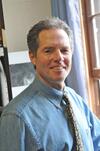
contact: cives@stonehill.edu
RESOURCE:
Read his Overview Essay, “Buddhism: A Mixed Dharmic bag: Debates About Buddhism and Ecology”
Watch video of him on the Buddhism Multimedia page
watch these interviews with him in our fore spotlights series:
Buddhism and Ecology with Chris Ives
Buddhist Environmentalism
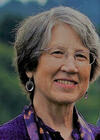 Stephanie Kaza is Professor Emerita of Environmental Studies at the University of Vermont and former Director of the UVM Environmental Program. Stephanie is a long-time practitioner of Soto Zen Buddhism, with training at Green Gulch Zen Center, California, and further study with Thich Nhat Hanh, Joanna Macy, and John Daido Loori. She was lay ordained by Kobun Chino Ottogawa in the late 1980s and applied her understanding of Buddhism as a member of the International Christian-Buddhist Theological Encounter group. Stephanie lectures widely on topics of Buddhism and the environment and has enjoyed leading workshops on the Greening of Buddhism for Zen Mountain Monastery in New York and the Whidbey Institute in Washington. She is the author of Green Buddhism: Practice and Compassionate Action in Uncertain Times (2019) and Mindfully Green: A Personal and Spiritual Guide to Whole Earth Thinking (2008) and is co-editor of Dharma Rain: Sources for Buddhist Environmentalism (2000). Read more.
Stephanie Kaza is Professor Emerita of Environmental Studies at the University of Vermont and former Director of the UVM Environmental Program. Stephanie is a long-time practitioner of Soto Zen Buddhism, with training at Green Gulch Zen Center, California, and further study with Thich Nhat Hanh, Joanna Macy, and John Daido Loori. She was lay ordained by Kobun Chino Ottogawa in the late 1980s and applied her understanding of Buddhism as a member of the International Christian-Buddhist Theological Encounter group. Stephanie lectures widely on topics of Buddhism and the environment and has enjoyed leading workshops on the Greening of Buddhism for Zen Mountain Monastery in New York and the Whidbey Institute in Washington. She is the author of Green Buddhism: Practice and Compassionate Action in Uncertain Times (2019) and Mindfully Green: A Personal and Spiritual Guide to Whole Earth Thinking (2008) and is co-editor of Dharma Rain: Sources for Buddhist Environmentalism (2000). Read more.
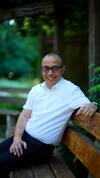 Dan Smyer Yü is Kuige Professor of Ethnology at Yunnan University in Southwest China. He currently serves as a board member of International Society for the Study of Religion, Nature and Culture (ISSRNC). He was a Senior Researcher/Research Group Leader at the Max Planck Institute for the Study of Religious and Ethnic Diversity in Germany. He is the author of The Spread of Tibetan Buddhism in China: Charisma, Money, Enlightenment (2011) and Mindscaping the Landscape of Tibet: Place, Memorability, Eco-aesthetics (2015), and the co-editor of Religion and Ecological Sustainability in China (2014) and Trans-Himalayan Borderlands: Livelihoods, Territorialities, Modernities (2017). Read more.
Dan Smyer Yü is Kuige Professor of Ethnology at Yunnan University in Southwest China. He currently serves as a board member of International Society for the Study of Religion, Nature and Culture (ISSRNC). He was a Senior Researcher/Research Group Leader at the Max Planck Institute for the Study of Religious and Ethnic Diversity in Germany. He is the author of The Spread of Tibetan Buddhism in China: Charisma, Money, Enlightenment (2011) and Mindscaping the Landscape of Tibet: Place, Memorability, Eco-aesthetics (2015), and the co-editor of Religion and Ecological Sustainability in China (2014) and Trans-Himalayan Borderlands: Livelihoods, Territorialities, Modernities (2017). Read more.
contact: dsmyeryu@gmail.com
Read his publications.
watch an interview with him from our spotlights video podcast series:
2.32 Dan Smyer Yü, PhD, Yunnan University and the University of Cologne
2.33 clip: Trans-Himalayan Studies, with Dan Smyer Yü
 Leslie E. Sponsel, a Professor Emeritus at the University of Hawai`i since 2010, still usually teaches one course each semester, including Sacred Places, Spiritual Ecology, and Anthropology of Buddhism. Since 1986, most summers he has visited Thailand to research aspects of Buddhist ecology and environmentalism, in recent years on sacred caves. His Spiritual Ecology: A Quiet Revolution won the science category of the Green Book Award in San Francisco in 2014. Read more.
Leslie E. Sponsel, a Professor Emeritus at the University of Hawai`i since 2010, still usually teaches one course each semester, including Sacred Places, Spiritual Ecology, and Anthropology of Buddhism. Since 1986, most summers he has visited Thailand to research aspects of Buddhist ecology and environmentalism, in recent years on sacred caves. His Spiritual Ecology: A Quiet Revolution won the science category of the Green Book Award in San Francisco in 2014. Read more.
contact: Sponsel@hawaii.edu
resource:
read his article “buddhism and ecology: theory and practice”
View his “Bibliography on Buddhist ecology and environmentalism”
Daoism
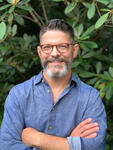
Bede Benjamin Bidlack is Professor of Theology at Saint Anselm College. He teaches and publishes in the areas of creation theology (anthropology and sacramental theology), comparative theology, interreligious dialogue, Daoist Studies, and philosophy. He is the author of, among other things, In Good Company: Body and Divinization in Pierre Teilhard de Chardin and Daoist Xiao Yingsou (Brill 2015). Most recently his contribution, “Waves of Time: Body and Cosmos in Internal Alchemy” is forthcoming in 2021 in Time in Daoist Practice: Cultivation and Calculation, Livia Kohn ed. St. Petersburg, FL: Three Pines Press. Read more.
contact: BBidlack@anselm.edu
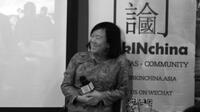
Chen Xia is a research fellow at the Institute of Philosophy, Chinese Academy of Social Sciences (CASS) in Beijing. Her specialty is Religions in China and Chinese Philosophy with a focus on Daoism. Her book, Studies of Daoist Moral Tracts focuses on Daoist ethics from the Song dynasty (960-1279) until the Qing dynasty (1636-1911). She is the chief editor and contributor of Studies of Daoist Ecological Thoughts. She is one of the translators for Daoism and Traditional Chinese Culture (Chinese to English) and helped translate Daoism and Ecology: Ways Within a Cosmic Landscape (2001) from English to Chinese. Read more.
Resource: View Chen Xia's CV
 Liu Xiaogan is Distinguished professor of the School of Philosophy, Director of International MA Program in Chinese Philosophy, and Director of International Research Center of Daoism and Chinese Culture at Beijing Normal University. He has taught and conducted research at the Chinese University of Hong Kong, Peking University, Harvard, Princeton, and the National University of Singapore. He is the author, editor, and contributor of numerous books and journals in Chinese and English, including Daoism and Ecology: Ways Within a Cosmic Landscape (2001). Read more.
Liu Xiaogan is Distinguished professor of the School of Philosophy, Director of International MA Program in Chinese Philosophy, and Director of International Research Center of Daoism and Chinese Culture at Beijing Normal University. He has taught and conducted research at the Chinese University of Hong Kong, Peking University, Harvard, Princeton, and the National University of Singapore. He is the author, editor, and contributor of numerous books and journals in Chinese and English, including Daoism and Ecology: Ways Within a Cosmic Landscape (2001). Read more.
contact: liuxiaogan@gmail.com

James Miller is Professor of Humanities, Associate Dean for Interdisciplinary Strategy, and co-director of the Humanities Research Center at Duke Kunshan University. Dr. Miller’s research is based in the study of Chinese philosophy, theology, and religion, with an emphasis on philosophy of nature, environmental ethics, and the intersection of religion and ecology in China. He has published six books including China’s Green Religion: Daoism and the Quest for a Sustainable Future (2017). He was co-editor of Daoism and Ecology: Ways Within a Cosmic Landscape (2001). Read more.
contact: jem122@duke.edu
RESOURCE:
Read his Overview Essay on Daoism and Ecology
Read his Introduction to the Daoism and Ecology volume
Watch videos of him speaking on Daoism and Ecology on our Daoism Multimedia page
Confucianism
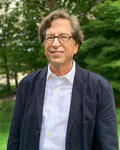 Daniel K. Gardner, Dwight W. Morrow Professor Emeritus of History and the Environment at Smith College, specializes in the cultural and intellectual history of premodern China and the environment in China today. He has written extensively on the Confucian and Neo-Confucian traditions in China, including Zhu Xi: BasicTeachings (forthcoming), Confucianism: A Very Short Introduction, Zhu Xi's Reading of the Analects: Canon, Commentary, and the Confucian Tradition, and Learning to Be a Sage: Selections from the Conversations of Master Chu, Arranged Topically. His interest in contemporary environmental matters in China has led to his recent publication, Environmental Pollution in China: What Everyone Needs to Know (Oxford, 2018). He is now working on a project, “Imagining an ‘Ecological Civilization’: China's Environmental Turn in the 21st Century,” for which he was awarded an Andrew Carnegie Fellowship. He has also written for the New York Times, the New Republic, the Guardian, the Los Angeles Times, the Christian Science Monitor, and elsewhere. Read more.
Daniel K. Gardner, Dwight W. Morrow Professor Emeritus of History and the Environment at Smith College, specializes in the cultural and intellectual history of premodern China and the environment in China today. He has written extensively on the Confucian and Neo-Confucian traditions in China, including Zhu Xi: BasicTeachings (forthcoming), Confucianism: A Very Short Introduction, Zhu Xi's Reading of the Analects: Canon, Commentary, and the Confucian Tradition, and Learning to Be a Sage: Selections from the Conversations of Master Chu, Arranged Topically. His interest in contemporary environmental matters in China has led to his recent publication, Environmental Pollution in China: What Everyone Needs to Know (Oxford, 2018). He is now working on a project, “Imagining an ‘Ecological Civilization’: China's Environmental Turn in the 21st Century,” for which he was awarded an Andrew Carnegie Fellowship. He has also written for the New York Times, the New Republic, the Guardian, the Los Angeles Times, the Christian Science Monitor, and elsewhere. Read more.
contact: dgardner@smith.edu
 Yong Huang is Professor of Philosophy at the Chinese University of Hong Kong.With interest in both philosophy and religious studies, and familiar with both Western and Chinese traditions, his research focus has been on moral (both ethical and political) issues from an interdisciplinary and comparative perspective. Dr. Huang served as the co-chair of the Confucian Tradition Group of American Academy of Religion, the Co-chair of the University Seminar on Neo-Confucian Studies at Columbia University, and the President of Association of Chinese Philosophers in American (1999-2001). He is the author of Confucius: A Guide for the Perplexed (2012) and co-editor of Moral Relativism and Chinese Philosophy (2014). Read more.
Yong Huang is Professor of Philosophy at the Chinese University of Hong Kong.With interest in both philosophy and religious studies, and familiar with both Western and Chinese traditions, his research focus has been on moral (both ethical and political) issues from an interdisciplinary and comparative perspective. Dr. Huang served as the co-chair of the Confucian Tradition Group of American Academy of Religion, the Co-chair of the University Seminar on Neo-Confucian Studies at Columbia University, and the President of Association of Chinese Philosophers in American (1999-2001). He is the author of Confucius: A Guide for the Perplexed (2012) and co-editor of Moral Relativism and Chinese Philosophy (2014). Read more.
contact: yonghuang@cuhk.edu.hk
RESOURCE:
Read his Overview Essay on “Confucian Environmental Virtue Ethics”
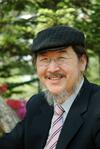 Heup Young Kim is President of Korea Forum for Science and Life and a former professor of Theology at Kangnam University, South Korea, and Distinguished Asian Theologian in Residence at the Graduate Theological Union, USA. He is a founding fellow of the International Society for Science and Religion and was a co-moderator of the Congress of Asian Theologians and a president of the Korean Society for Systematic Theology. He served as a fellow at Harvard Center for the Study of World Religions, GTU Center for Theology and the National Sciences, and Cambridge Centre for Advanced Religious and Theological Studies. Proposing theo-dao as a new paradigm of theology, he has published extensively in the areas of interfaith dialogue, theology of religions, Asian theology, and theology and science/ecology, in both English and Korean, including monographs of Wang Yang-ming and Karl Barth: A Confucian-Christian Dialogue (1996), Christ and the Tao (2003), and A Theology of Dao (2017). Read more.
Heup Young Kim is President of Korea Forum for Science and Life and a former professor of Theology at Kangnam University, South Korea, and Distinguished Asian Theologian in Residence at the Graduate Theological Union, USA. He is a founding fellow of the International Society for Science and Religion and was a co-moderator of the Congress of Asian Theologians and a president of the Korean Society for Systematic Theology. He served as a fellow at Harvard Center for the Study of World Religions, GTU Center for Theology and the National Sciences, and Cambridge Centre for Advanced Religious and Theological Studies. Proposing theo-dao as a new paradigm of theology, he has published extensively in the areas of interfaith dialogue, theology of religions, Asian theology, and theology and science/ecology, in both English and Korean, including monographs of Wang Yang-ming and Karl Barth: A Confucian-Christian Dialogue (1996), Christ and the Tao (2003), and A Theology of Dao (2017). Read more.
contact: hykim49@outlook.com
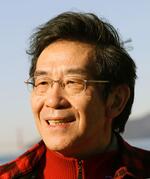 Tu Weiming is a preeminent Chinese scholar, a representative figure of contemporary Neo-Confucianism, and a crucial practitioner on the research and transmission of Confucian culture. He is currently Chair Professor of Humanities and Founding Director of the Institute for Advanced Humanistic Studies at Peking University, and Professor Emeritus of Chinese Philosophy and Senior Fellow of the Asia Center at Harvard University. For over 50 years, Professor Tu has devoted himself to the interpretation of Confucian Classics and to the evaluation of Confucianism from a perspective of cultural diversity in the world. He was a major partner with Tucker and Grim in the Harvard conference series on religion and ecology. He has published widely including landmark articles such as: “Beyond the Enlightenment Mentality: A Confucian Perspective on Ethics, Migration, and Global Stewardship” (1996) and “The Continuity of Being: Chinese Visions of Nature” (1989). His numerous books include Commonality and Centrality (1989) and the Global Significance of Concrete Humanity (2010). With Mary Evelyn Tucker he edited two volumes on Confucian Spirituality (2003, 2004). Read more.
Tu Weiming is a preeminent Chinese scholar, a representative figure of contemporary Neo-Confucianism, and a crucial practitioner on the research and transmission of Confucian culture. He is currently Chair Professor of Humanities and Founding Director of the Institute for Advanced Humanistic Studies at Peking University, and Professor Emeritus of Chinese Philosophy and Senior Fellow of the Asia Center at Harvard University. For over 50 years, Professor Tu has devoted himself to the interpretation of Confucian Classics and to the evaluation of Confucianism from a perspective of cultural diversity in the world. He was a major partner with Tucker and Grim in the Harvard conference series on religion and ecology. He has published widely including landmark articles such as: “Beyond the Enlightenment Mentality: A Confucian Perspective on Ethics, Migration, and Global Stewardship” (1996) and “The Continuity of Being: Chinese Visions of Nature” (1989). His numerous books include Commonality and Centrality (1989) and the Global Significance of Concrete Humanity (2010). With Mary Evelyn Tucker he edited two volumes on Confucian Spirituality (2003, 2004). Read more.
RESOURCE:
Watch video of him on our Confucianism Multimedia page
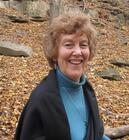 Mary Evelyn Tucker is Co-Founder and Co-Director of the Yale Forum on Religion and Ecology with her husband, John Grim. With Grim she directed a 10-conference series and book project on “World Religions and Ecology” at Harvard University from 1996-1998. In that series Tucker co-edited Buddhism and Ecology (1997), Confucianism and Ecology (1998), and Hinduism and Ecology (2000). With Grim she has authored Ecology and Religion (2014) and Thomas Berry: A Biography (2019). With Brian Thomas Swimme she wrote Journey of the Universe (2011) and was the executive producer of the Emmy award winning Journey film that aired on PBS. She served on the International Earth Charter Drafting Committee and was a member of the Earth Charter International Council. Read more.
Mary Evelyn Tucker is Co-Founder and Co-Director of the Yale Forum on Religion and Ecology with her husband, John Grim. With Grim she directed a 10-conference series and book project on “World Religions and Ecology” at Harvard University from 1996-1998. In that series Tucker co-edited Buddhism and Ecology (1997), Confucianism and Ecology (1998), and Hinduism and Ecology (2000). With Grim she has authored Ecology and Religion (2014) and Thomas Berry: A Biography (2019). With Brian Thomas Swimme she wrote Journey of the Universe (2011) and was the executive producer of the Emmy award winning Journey film that aired on PBS. She served on the International Earth Charter Drafting Committee and was a member of the Earth Charter International Council. Read more.
contact: maryevelyn.tucker@yale.edu
resource:
see a full listing of her books, articles, and much more on our press kit page
See Video and podcasts featuring mary Evelyn
Shinto
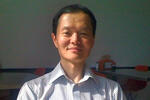 Ken Kitatani currently serves as the Director-General of the International Council on Environmental Economics and Development. He serves on the boards of the UN Committee of NGOs, Society for Conservation Biology, and is co-chair of the Advisory Board of the Center for Earth Ethics. He is a Permanent Observer to the UNFCCC Standing Committee on Finance, and the Local Communities and Indigenous Peoples Platform of the UNFCCC. Ken is an advisor to the Vatican Scholas Occurrentes Foundation, the Loka Initiative (University of Wisconsin), and the GNH Happiness Alliance. Read more.
Ken Kitatani currently serves as the Director-General of the International Council on Environmental Economics and Development. He serves on the boards of the UN Committee of NGOs, Society for Conservation Biology, and is co-chair of the Advisory Board of the Center for Earth Ethics. He is a Permanent Observer to the UNFCCC Standing Committee on Finance, and the Local Communities and Indigenous Peoples Platform of the UNFCCC. Ken is an advisor to the Vatican Scholas Occurrentes Foundation, the Loka Initiative (University of Wisconsin), and the GNH Happiness Alliance. Read more.
contact: kenkitatani@i-ceed.org

contact: michi@kurozumikyo.com
Interreligious
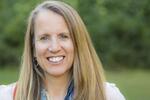
contact: eallison@ciis.edu
watch this interview with her in our spotlights video podcast series
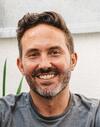 Whitney Bauman is Associate Professor of Religious Studies at Florida International University where his areas of specialization are in Religion and Science, and Religion and Nature. He is the author of Theology, Creation and Environmental Ethics: From Creatio Ex Nihilo to Terra Nullius (2009) and Religion and Ecology: Developing a Planetary Ethic (2014) and is co-author of Environmental Ethics and Uncertainty: Wrestling with Wicked Problems (2019). In 2018, Dr. Bauman co-founded the nonprofit, Counterpoint: Navigating Knowledge, which focuses on fostering planetary conversations about the effects of globalization and climate change. Read more.
Whitney Bauman is Associate Professor of Religious Studies at Florida International University where his areas of specialization are in Religion and Science, and Religion and Nature. He is the author of Theology, Creation and Environmental Ethics: From Creatio Ex Nihilo to Terra Nullius (2009) and Religion and Ecology: Developing a Planetary Ethic (2014) and is co-author of Environmental Ethics and Uncertainty: Wrestling with Wicked Problems (2019). In 2018, Dr. Bauman co-founded the nonprofit, Counterpoint: Navigating Knowledge, which focuses on fostering planetary conversations about the effects of globalization and climate change. Read more.
contact: wbauman@fiu.edu
RESOURCE:
Read his Introduction to the volume Grounding Religion
Watch this interview with him in our Spotlights Video Podcast series
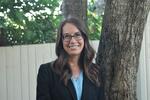
contact: kcarfore@usfca.edu
watch interviews with her in our spotlights video podcast series:
1.12 Kimberly carfore, university of sanfrancisco
1.22 Kimberly Carfore, University of sanfrancisco
3.1 Joseph Wiebe and Kimberly Carfore on the Future of Religion and Ecology
3.9 Religion and Ecology at the American Academy of Religion
3.10 Contemplative Posthuman Design, a Conversation with Sam Mickey & Kimberly Carfore
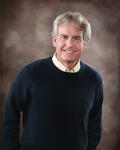 The Reverend Thomas Carr is an ordained American Baptist Churches, USA minister and recently retired Pastor living in Connecticut. He is a certified Spiritual Director since 2014 and works with individuals and groups in spiritual and vocational discernment. For 35 years he has been involved in issues of ecology and environmental justice with local congregations, ecumenically and on an interfaith basis. He is the co-founder and coordinator of the American Baptist Churches, USA, Creation Justice Network (ABC, CJN) and the Connecticut Interreligious Eco-Justice Network (IREJN). He is also part of the National Religious Coalition on Creation Care (NRCCC). He is an activist for local, state and national environmental and human justice concerns.
The Reverend Thomas Carr is an ordained American Baptist Churches, USA minister and recently retired Pastor living in Connecticut. He is a certified Spiritual Director since 2014 and works with individuals and groups in spiritual and vocational discernment. For 35 years he has been involved in issues of ecology and environmental justice with local congregations, ecumenically and on an interfaith basis. He is the co-founder and coordinator of the American Baptist Churches, USA, Creation Justice Network (ABC, CJN) and the Connecticut Interreligious Eco-Justice Network (IREJN). He is also part of the National Religious Coalition on Creation Care (NRCCC). He is an activist for local, state and national environmental and human justice concerns.
contact: thomascarr1957@gmail.com
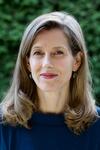 Karenna Gore is the founder and director of the Center for Earth Ethics (CEE) at Union Theological Seminary. She is also an ex officio member of the faculty of the Earth Institute at Columbia University. Her previous experience includes serving as director of Union Forum at Union Theological Seminary, legal work at Simpson Thacher & Bartlett, and in the legal center of Sanctuary for Families, and serving as director of Community Affairs for the Association to Benefit Children (ABC). Read more.
Karenna Gore is the founder and director of the Center for Earth Ethics (CEE) at Union Theological Seminary. She is also an ex officio member of the faculty of the Earth Institute at Columbia University. Her previous experience includes serving as director of Union Forum at Union Theological Seminary, legal work at Simpson Thacher & Bartlett, and in the legal center of Sanctuary for Families, and serving as director of Community Affairs for the Association to Benefit Children (ABC). Read more.
contact: kgore@uts.columbia.edu
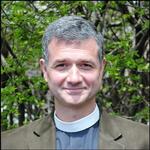 Fletcher Harper is GreenFaith’s Executive Director. A pioneer of the global religious environmental movement, he helps spearhead the faith-based fossil fuel divestment movement and organizes faith turnouts at major climate mobilizations. The Rev. Harper is also a co-founder of Shine, an international campaign that supports women and community-led renewable energy access initiatives in Africa and India. He is the author of GreenFaith: Mobilizing God’s People to Protect the Earth (2015). Read more.
Fletcher Harper is GreenFaith’s Executive Director. A pioneer of the global religious environmental movement, he helps spearhead the faith-based fossil fuel divestment movement and organizes faith turnouts at major climate mobilizations. The Rev. Harper is also a co-founder of Shine, an international campaign that supports women and community-led renewable energy access initiatives in Africa and India. He is the author of GreenFaith: Mobilizing God’s People to Protect the Earth (2015). Read more.
contact: fletcher@greenfaith.org
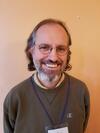 Dan McKanan is the Emerson Senior Lecturer and director of the Program on the Evolution of Spirituality at Harvard Divinity School, where he has taught since 2008. Dan’s research focuses on religious and spiritual movements for social and ecological transformation, with a particular emphasis on intentional communities and sustainable agriculture. Dan is the author or editor of eight books, among them Prophetic Encounters: Religion and the American Radical Tradition (Beacon, 2011), Eco-Alchemy: Anthroposophy and the History and Future of Environmentalism (California, 2017), and Camphill and the Future: Spirituality and Disability in an Evolving Communal Movement (California, 2020). As a committed Unitarian Universalist and sympathetic outsider to the anthroposophical movement, Dan focuses much of his scholarly attention on those two spiritual traditions. Read more.
Dan McKanan is the Emerson Senior Lecturer and director of the Program on the Evolution of Spirituality at Harvard Divinity School, where he has taught since 2008. Dan’s research focuses on religious and spiritual movements for social and ecological transformation, with a particular emphasis on intentional communities and sustainable agriculture. Dan is the author or editor of eight books, among them Prophetic Encounters: Religion and the American Radical Tradition (Beacon, 2011), Eco-Alchemy: Anthroposophy and the History and Future of Environmentalism (California, 2017), and Camphill and the Future: Spirituality and Disability in an Evolving Communal Movement (California, 2020). As a committed Unitarian Universalist and sympathetic outsider to the anthroposophical movement, Dan focuses much of his scholarly attention on those two spiritual traditions. Read more.
contact: dmckanan@hds.harvard.edu
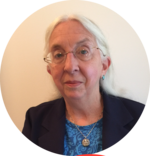 Kusumita P. Pedersen is Professor Emerita of Religious Studies at St. Francis College and Chair of the Interfaith Center of New York. She is also a member of the Climate Action Task Force (CATF) of the Parliament of the World’s Religions and of the Climate Working Group of the Committee of Religious NGOs at the United Nations. She is co-author of Global Ethics in Practice: Historical Backgrounds, Current Issues and Future Prospects (Edinburgh University Press, 2016) and co-editor of Faith for Earth: A Call to Action (UN Environment Programme and Parliament of the World’s Religions, 2020). Kusumita has compiled and edited librettos for two works by Philip Glass: Symphony No. 5: Bardo, Requiem and Nirmānakāya (1999) and The Passion of Ramakrishna (2006). She has been a student of Sri Chinmoy (1931-2007) since 1971 and her book Love and Transformation: The Philosophy of Sri Chinmoy is forthcoming from Lexington Books. Read more.
Kusumita P. Pedersen is Professor Emerita of Religious Studies at St. Francis College and Chair of the Interfaith Center of New York. She is also a member of the Climate Action Task Force (CATF) of the Parliament of the World’s Religions and of the Climate Working Group of the Committee of Religious NGOs at the United Nations. She is co-author of Global Ethics in Practice: Historical Backgrounds, Current Issues and Future Prospects (Edinburgh University Press, 2016) and co-editor of Faith for Earth: A Call to Action (UN Environment Programme and Parliament of the World’s Religions, 2020). Kusumita has compiled and edited librettos for two works by Philip Glass: Symphony No. 5: Bardo, Requiem and Nirmānakāya (1999) and The Passion of Ramakrishna (2006). She has been a student of Sri Chinmoy (1931-2007) since 1971 and her book Love and Transformation: The Philosophy of Sri Chinmoy is forthcoming from Lexington Books. Read more.
Read this essay: “The Interfaith Movement: An Incomplete Assessment”
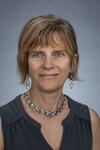
contact: spike@csuchico.edu
watch this interview with her in our spotlights video podcast series
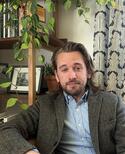 Russell C. Powell is Core Fellow and Visiting Assistant Professor of Environmental Theology and Ethics at Boston College. He completed his doctorate at Princeton Theological Seminary in 2019 and pursues his scholarship in the fields of religion and ecology, ecocriticism and ecotheology, modern moral and political philosophy, and American social criticism. Russell is currently at work on a manuscript that reassesses the religion, ethics, and politics of John Muir, the renowned conservationist and founder of the Sierra Club. He is also editing a special issue of the Journal for the Study of Religion, Nature, and Culture that reappraises crucial figures in the American environmental tradition in light of contemporary social justice concerns. Before joining the faculty at Boston College, Russell taught at Princeton University, Amherst College, and the College of the Holy Cross (Worcester, MA). Read more.
Russell C. Powell is Core Fellow and Visiting Assistant Professor of Environmental Theology and Ethics at Boston College. He completed his doctorate at Princeton Theological Seminary in 2019 and pursues his scholarship in the fields of religion and ecology, ecocriticism and ecotheology, modern moral and political philosophy, and American social criticism. Russell is currently at work on a manuscript that reassesses the religion, ethics, and politics of John Muir, the renowned conservationist and founder of the Sierra Club. He is also editing a special issue of the Journal for the Study of Religion, Nature, and Culture that reappraises crucial figures in the American environmental tradition in light of contemporary social justice concerns. Before joining the faculty at Boston College, Russell taught at Princeton University, Amherst College, and the College of the Holy Cross (Worcester, MA). Read more.
contact: russell.powell@bc.edu
watch this interview with him in our spotlights video podcast series
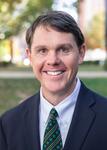 Daniel P. Scheid is Associate Professor of Theology at Duquesne University in Pittsburgh, Pennsylvania. His theological work focuses on interreligious ecological ethics, drawing on Catholic social thought and comparative theology, with particular attention to Catholic-Hindu and Catholic-Buddhist dialogue. In addition to multiple journal articles and book chapters, he is the author of The Cosmic Common Good: Religious Grounds for Ecological Ethics (Oxford University Press, 2016), which reorients ecologically key principles of Catholic social thought and places these in dialogue with Hindu, Buddhist, and American Indian religious traditions. Dr. Scheid has collaborated with various groups at the intersection of religion and ecology including the Yale Forum, Catholic Climate Covenant, the American Teilhard Association, and Christian Life Community. Read more.
Daniel P. Scheid is Associate Professor of Theology at Duquesne University in Pittsburgh, Pennsylvania. His theological work focuses on interreligious ecological ethics, drawing on Catholic social thought and comparative theology, with particular attention to Catholic-Hindu and Catholic-Buddhist dialogue. In addition to multiple journal articles and book chapters, he is the author of The Cosmic Common Good: Religious Grounds for Ecological Ethics (Oxford University Press, 2016), which reorients ecologically key principles of Catholic social thought and places these in dialogue with Hindu, Buddhist, and American Indian religious traditions. Dr. Scheid has collaborated with various groups at the intersection of religion and ecology including the Yale Forum, Catholic Climate Covenant, the American Teilhard Association, and Christian Life Community. Read more.
contact: scheidd@duq.edu
watch an interview with him in our spotlights video podcast series:
3.4 The Cosmic Common Good, with Daniel Scheid
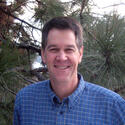 Dan Spencer is Professor of Environmental Studies and has taught at The University of Montana since 2002. Some of his areas of teaching and research interests include ecological ethics, ethical issues in ecological restoration, ecology and religion, and globalization, justice, and environmental issues in Latin America and the global economy. He earned his B.A. in Geology from Carleton College (1979) and Masters (1983) and Ph.D. (1994) in Environmental Ethics from Union Theological Seminary, New York. He is the author of Gay and Gaia: Ethics, Ecology and the Erotic, published by The Pilgrim Press (1996) and most recently co-authored a book with Laura Stivers and Jim Martin-Schramm: Earth Ethics: A Case Method Approach, available through Orbis Press. Read more.
Dan Spencer is Professor of Environmental Studies and has taught at The University of Montana since 2002. Some of his areas of teaching and research interests include ecological ethics, ethical issues in ecological restoration, ecology and religion, and globalization, justice, and environmental issues in Latin America and the global economy. He earned his B.A. in Geology from Carleton College (1979) and Masters (1983) and Ph.D. (1994) in Environmental Ethics from Union Theological Seminary, New York. He is the author of Gay and Gaia: Ethics, Ecology and the Erotic, published by The Pilgrim Press (1996) and most recently co-authored a book with Laura Stivers and Jim Martin-Schramm: Earth Ethics: A Case Method Approach, available through Orbis Press. Read more.
contact: Daniel.Spencer@mso.umt.edu
RESOURCE:
Watch an interview with him in our Journey of the Universe: 10 Years Later podcast series.
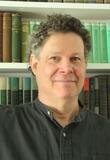 Paul Waldau retired in 2018 from Canisius College in Buffalo, NY, where he was Professor in the Animal Behavior, Ecology and Conservation Department and Director of the graduate program in Anthrozoology. After completing a Doctor of Philosophy degree at the University of
Paul Waldau retired in 2018 from Canisius College in Buffalo, NY, where he was Professor in the Animal Behavior, Ecology and Conservation Department and Director of the graduate program in Anthrozoology. After completing a Doctor of Philosophy degree at the University of
Oxford in 1997, Paul taught Animal Law at Harvard Law School from 2002 to 2014 and, until 2019, a variety of courses in Harvard’s Summer School focusing on nonhuman animals in the areas of ethics, science and religion and law. After helping found the Animals and Religion group at the American Academy of Religion in the 1990s and then serving as co-chair of this group for six years, Paul spent a decade teaching ethics and public policy at Tufts University School of Veterinary Medicine, where he was the Director of the Center for Animals and Public Policy until 2009. He has completed five books, which include Animal Studies—An Introduction (2013), Animal Rights (2011), and A Communion of Subjects: Animals in Religion, Science, and Ethics (2006). Read more.
Contact: pwaldau@gmail.com
RESOURCE:
Watch video of him on our Religion & Ecology: Other Scholars Multimedia page
Laudato Si'
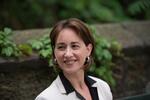 Erin Lothes, Ph.D., is the executive director of Bethany Center Hudson Valley, an ecological education center. She is author of Inspired Sustainability: Planting Seeds for Action (Orbis 2016) and The Paradox of Christian Sacrifice: The Loss of Self, The Gift of Self (Herder and Herder, 2007), as well as many articles on faith-based environmentalism and energy ethics. Most recently, she has written a commentary to introduce the Orbis Books paper publication of Pope Francis's apostolic exhortation, Laudate Deum. Dr. Lothes was a tenured associate professor of theology for twelve years at St. Elizabeth’s University, and then resigned to become senior manager of the Laudato Si Animators Program with the Laudato Si Movement, directing the spiritual and advocacy formation of thousands of Catholics globally to care for our common home. She has been a long-time collaborator and divestment activist with many interfaith environmental coalitions such as GreenFaith, the Forum on Religion and Ecology at Yale, and the Center for Earth Ethics at Union Theological Seminary, where she is presently a visiting scholar. She is also an ecclesial affiliate with the Laudato Si Research Institute, Campion Hall at Oxford University. Dr. Lothes has presented at international seminars at the Pontifical Academy of Sciences, the Marrakech 2016 United Nations Climate Conference (COP), and the International SIGNIS Catholic Communications Conference. Read more.
Erin Lothes, Ph.D., is the executive director of Bethany Center Hudson Valley, an ecological education center. She is author of Inspired Sustainability: Planting Seeds for Action (Orbis 2016) and The Paradox of Christian Sacrifice: The Loss of Self, The Gift of Self (Herder and Herder, 2007), as well as many articles on faith-based environmentalism and energy ethics. Most recently, she has written a commentary to introduce the Orbis Books paper publication of Pope Francis's apostolic exhortation, Laudate Deum. Dr. Lothes was a tenured associate professor of theology for twelve years at St. Elizabeth’s University, and then resigned to become senior manager of the Laudato Si Animators Program with the Laudato Si Movement, directing the spiritual and advocacy formation of thousands of Catholics globally to care for our common home. She has been a long-time collaborator and divestment activist with many interfaith environmental coalitions such as GreenFaith, the Forum on Religion and Ecology at Yale, and the Center for Earth Ethics at Union Theological Seminary, where she is presently a visiting scholar. She is also an ecclesial affiliate with the Laudato Si Research Institute, Campion Hall at Oxford University. Dr. Lothes has presented at international seminars at the Pontifical Academy of Sciences, the Marrakech 2016 United Nations Climate Conference (COP), and the International SIGNIS Catholic Communications Conference. Read more.
contact: erinlothesb@gmail.com
Resource: Watch a video of Erin on our Climate Emergency Multimedia Page
Resource: Read articles by Erin on the Laudato Si’ Movement site
 Lauren Griffith is a recent graduate from Yale University’s joint master’s degree program in Religion and Ecology from Yale School of the Environment (formerly Yale School of Forestry and Environmental Studies) and Yale Divinity School. She partnered with the Archdiocese of Chicago to develop effective environmental communications and build robust community engagement around care for creation throughout the diocese’s many local parishes. Lauren also worked with the Garrison Institute following their conference on Planetary Health, and cultivated resources to further support research and programming around the Institute's focus on pervasive altruism, ecological design, regenerative economics, and conservation.
Lauren Griffith is a recent graduate from Yale University’s joint master’s degree program in Religion and Ecology from Yale School of the Environment (formerly Yale School of Forestry and Environmental Studies) and Yale Divinity School. She partnered with the Archdiocese of Chicago to develop effective environmental communications and build robust community engagement around care for creation throughout the diocese’s many local parishes. Lauren also worked with the Garrison Institute following their conference on Planetary Health, and cultivated resources to further support research and programming around the Institute's focus on pervasive altruism, ecological design, regenerative economics, and conservation.
contact: lauren.griffith@aya.yale.edu
Climate Emergency
 Jim Antal is a denominational leader, climate activist, author and public theologian. He serves as Special Advisor on Climate Justice to the General Minister and President of the United Church of Christ. The Rev. Dr. Antal’s book Climate Church, Climate World was featured in the Chicago Tribune on Earth Day 2018, and in the Christian Century Magazine on Earth Day 2019. Antal received the 2019 Steward of Creation award from the National Religious Coalition for Creation Care, joining the Rev. Dr. Gerald Durley and Prof. Katharine Hayhoe, and previous awardees HAH Ecumenical Patriarch Bartholomew, Bill McKibben, the Sioux Nation, James Hansen, and Wendell Berry. Read more.
Jim Antal is a denominational leader, climate activist, author and public theologian. He serves as Special Advisor on Climate Justice to the General Minister and President of the United Church of Christ. The Rev. Dr. Antal’s book Climate Church, Climate World was featured in the Chicago Tribune on Earth Day 2018, and in the Christian Century Magazine on Earth Day 2019. Antal received the 2019 Steward of Creation award from the National Religious Coalition for Creation Care, joining the Rev. Dr. Gerald Durley and Prof. Katharine Hayhoe, and previous awardees HAH Ecumenical Patriarch Bartholomew, Bill McKibben, the Sioux Nation, James Hansen, and Wendell Berry. Read more.
contact: revjma@gmail.com
Resource: Watch Video of Jim on our Climate Emergency Multimedia Page
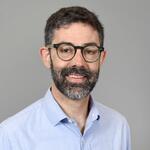 Evan Berry is Assistant Professor of Environmental Humanities in the School of History, Philosophy, and Religious Studies at Arizona State University. He has previously taught at American University and Lewis and Clark College. His research examines the relationship between religion and the public sphere in contemporary societies, with special attention to the way religious ideas and organizations are mobilized in response to climate change and other global environmental challenges. Berry is the author of Devoted to Nature: The Religious Roots of American Environmentalism (2015), which traces the influence of Christian theology on the environmental movement in the United States. Read more.
Evan Berry is Assistant Professor of Environmental Humanities in the School of History, Philosophy, and Religious Studies at Arizona State University. He has previously taught at American University and Lewis and Clark College. His research examines the relationship between religion and the public sphere in contemporary societies, with special attention to the way religious ideas and organizations are mobilized in response to climate change and other global environmental challenges. Berry is the author of Devoted to Nature: The Religious Roots of American Environmentalism (2015), which traces the influence of Christian theology on the environmental movement in the United States. Read more.
contact: Evan.Berry@asu.edu
Resource: Watch an interview with Evan Berry in our FORE Spotlights series
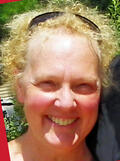 Barbara Darling is a faculty member in the Department of Religion at Wheaton College in Norton, MA, where she teaches courses in Religion and Ecology, Religion and Animals (and many others), and has for thirty years. An active member of the AAR’s Religion and Ecology Group and Animals and Religion Group, she formerly served on the Steering Committee of Animals and Religion. She has chaired, co-chaired, and served on environmental task forces of the United Church of Christ at all levels (national, statewide/conference, and congregation). She has edited a number of books in the Boston University Studies in Philosophy and Religion series, including Courage, Can Virtue Be Taught? and Responsibility. Her Ph.D. is in Theology, Ethics, and the Philosophy of Religion from Boston University. Read more.
Barbara Darling is a faculty member in the Department of Religion at Wheaton College in Norton, MA, where she teaches courses in Religion and Ecology, Religion and Animals (and many others), and has for thirty years. An active member of the AAR’s Religion and Ecology Group and Animals and Religion Group, she formerly served on the Steering Committee of Animals and Religion. She has chaired, co-chaired, and served on environmental task forces of the United Church of Christ at all levels (national, statewide/conference, and congregation). She has edited a number of books in the Boston University Studies in Philosophy and Religion series, including Courage, Can Virtue Be Taught? and Responsibility. Her Ph.D. is in Theology, Ethics, and the Philosophy of Religion from Boston University. Read more.
contact: darling_barbara@wheatoncollege.edu
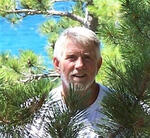 David Hales is Chair of the Climate Action Task force for the Parliament of the World’s Religions. He has held numerous positions promoting environmental sustainability nationally and internationally. He directed environmental policy and sustainability programs of the United States Agency for International Development (USAID), served as Deputy Assistant Secretary at the United States Department of the Interior, and was Director of the Michigan Department of Natural Resources. Hales also chaired the Higher Education Committee for the American Council on Renewable Energy, and has represented the United States in numerous intergovernmental negotiations, including the Framework Convention on Climate Change, the Convention on Biodiversity, and the United Nations Commission on Sustainable Development. Read more.
David Hales is Chair of the Climate Action Task force for the Parliament of the World’s Religions. He has held numerous positions promoting environmental sustainability nationally and internationally. He directed environmental policy and sustainability programs of the United States Agency for International Development (USAID), served as Deputy Assistant Secretary at the United States Department of the Interior, and was Director of the Michigan Department of Natural Resources. Hales also chaired the Higher Education Committee for the American Council on Renewable Energy, and has represented the United States in numerous intergovernmental negotiations, including the Framework Convention on Climate Change, the Convention on Biodiversity, and the United Nations Commission on Sustainable Development. Read more.
contact: dhales@dfhales.com
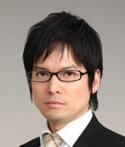 Kazunao Sato is an expert and specialist in Ecological Economics and Sustainable Development. He currently serves as an Executive Director of the International Council on Environmental Economics and Development. For over 20 years Kazunao has served as Director for several competitive global industries, finance securities and service industries in APAC, the Indian subcontinent, and Japan. He also serves in the following capacities: Permanent Observer to the UNFCCC Standing Committee on Finance; Representative to the United Nations and Specialized Consultative Status Member of the United Nations Economic and Social Council (ECOSOC) UN Headquarters and United Nations Office of Vienna (UNOV). Read more.
Kazunao Sato is an expert and specialist in Ecological Economics and Sustainable Development. He currently serves as an Executive Director of the International Council on Environmental Economics and Development. For over 20 years Kazunao has served as Director for several competitive global industries, finance securities and service industries in APAC, the Indian subcontinent, and Japan. He also serves in the following capacities: Permanent Observer to the UNFCCC Standing Committee on Finance; Representative to the United Nations and Specialized Consultative Status Member of the United Nations Economic and Social Council (ECOSOC) UN Headquarters and United Nations Office of Vienna (UNOV). Read more.
contact: k.sato@i-ceed.org
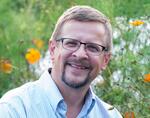 Norman Wirzba is the Gilbert T. Rowe Distinguished Professor of Theology and a Senior Fellow at the Kenan Institute for Ethics at Duke University. He teaches and writes at the intersections of theology, philosophy, and agrarian and environmental studies. At Duke he has been involved in faculty efforts to bring climate change to the university’s mission. He is the author of multiple books, including This Sacred Life: Humanity’s Place in a Wounded World and Agrarian Spirit: Cultivating Faith, Community, and the Land. Read more.
Norman Wirzba is the Gilbert T. Rowe Distinguished Professor of Theology and a Senior Fellow at the Kenan Institute for Ethics at Duke University. He teaches and writes at the intersections of theology, philosophy, and agrarian and environmental studies. At Duke he has been involved in faculty efforts to bring climate change to the university’s mission. He is the author of multiple books, including This Sacred Life: Humanity’s Place in a Wounded World and Agrarian Spirit: Cultivating Faith, Community, and the Land. Read more.
contact: nwirzba@div.duke.edu
watch an interview with him from our spotlights video podcast series:
2.4 Norman Wirzba, Duke University
2.5 clip: The Rooted Life, with Norman Wirzba
2.23 clip: Limits and Enough, with Norman Wirzba
